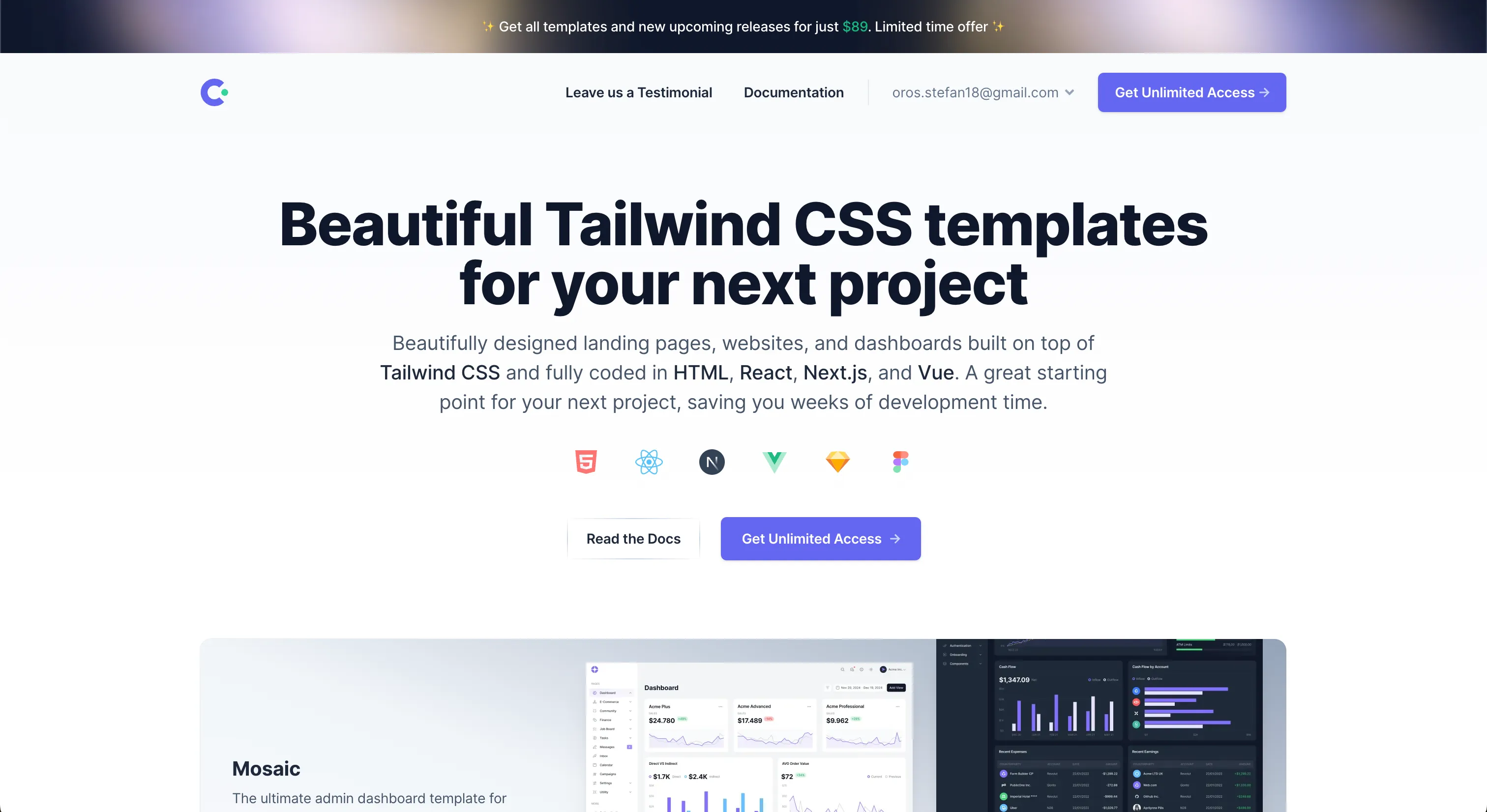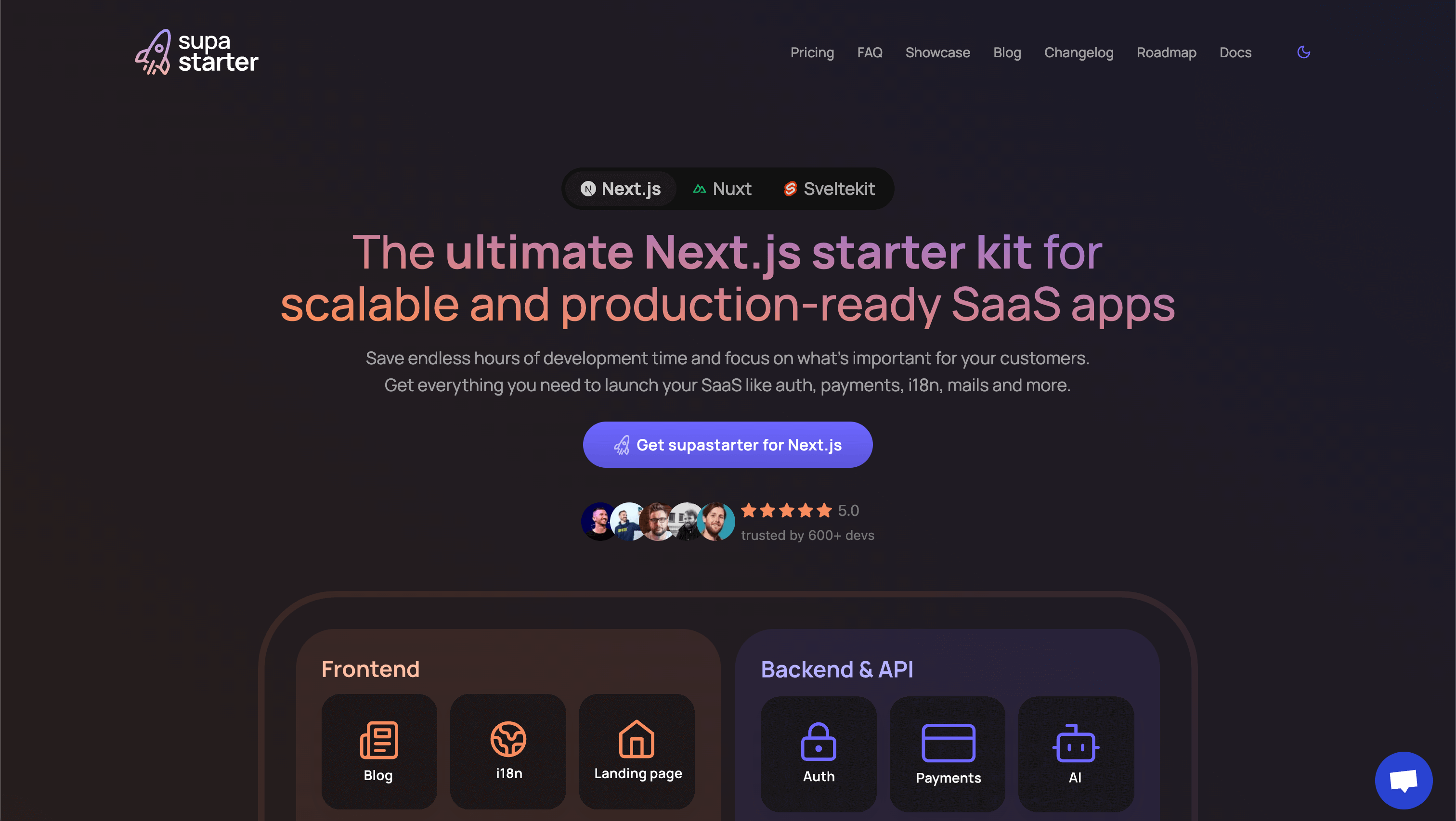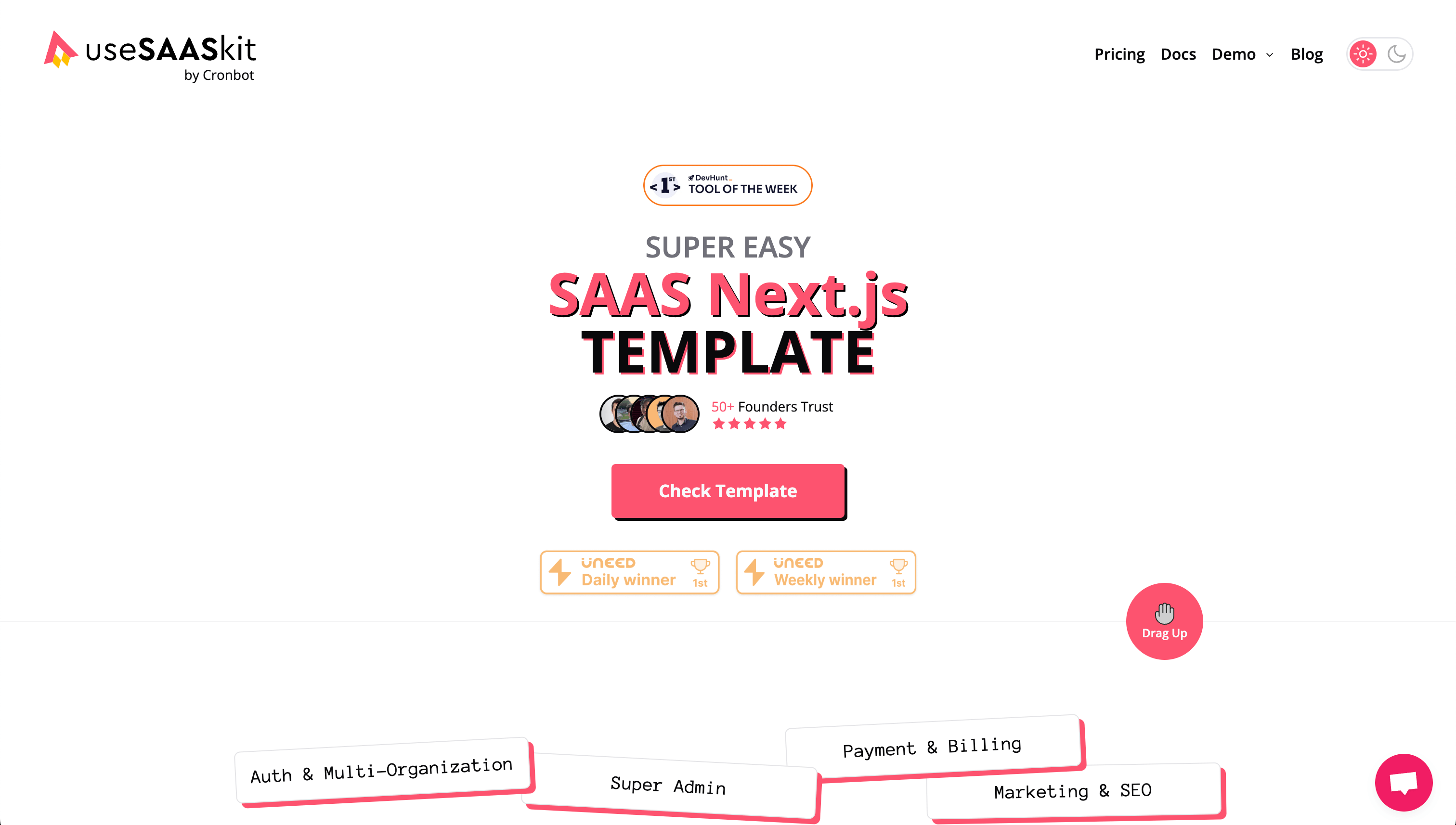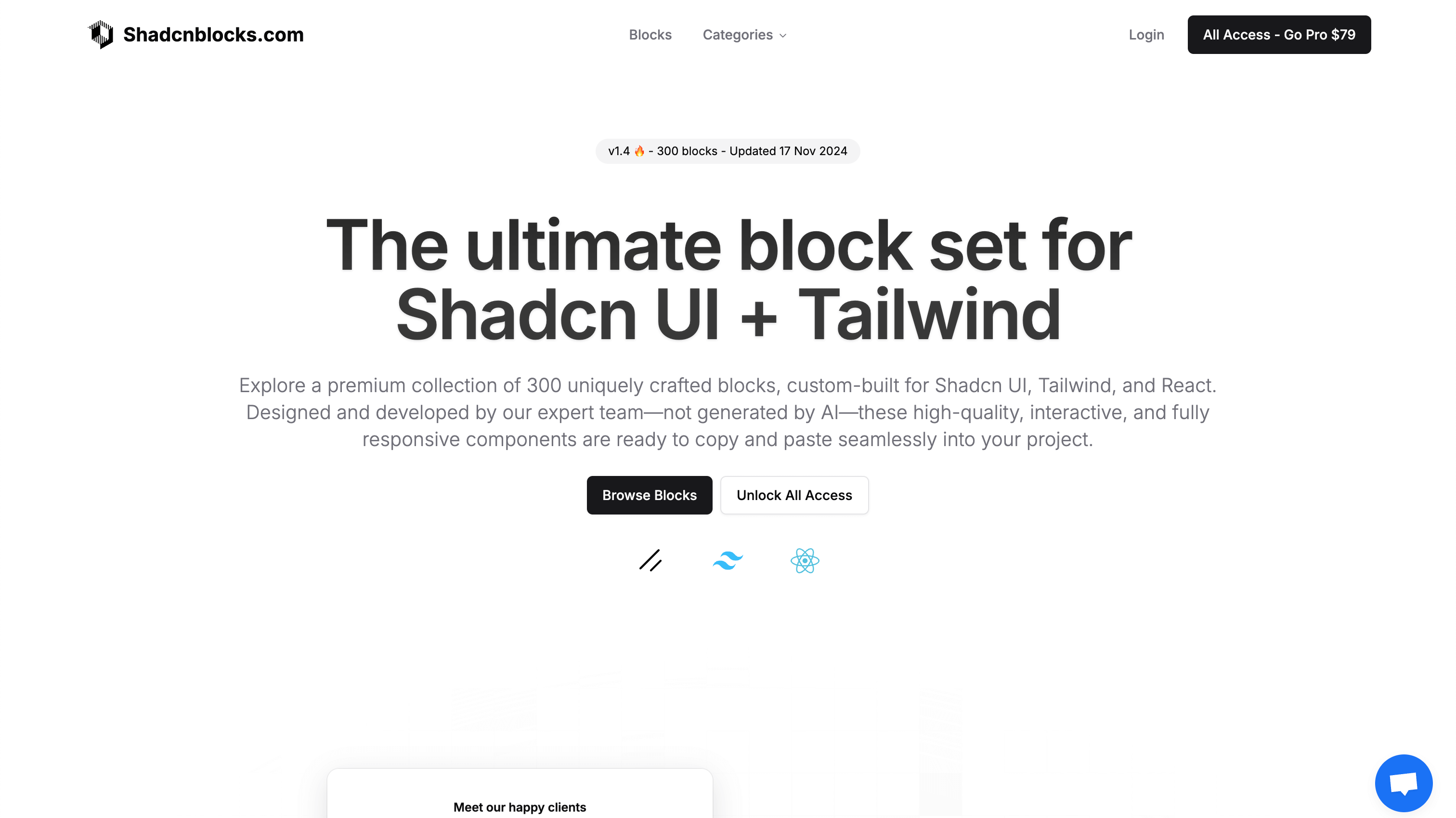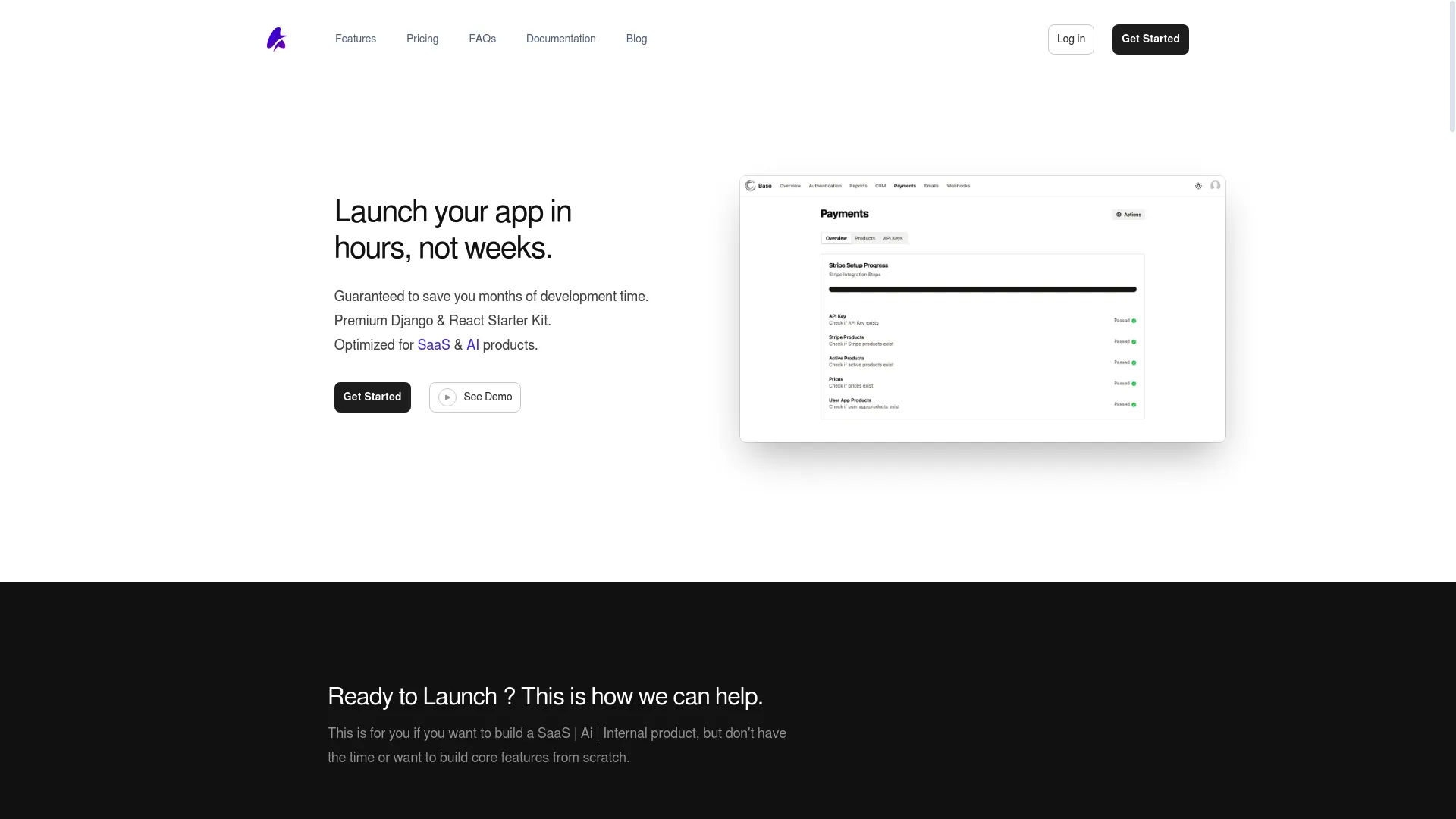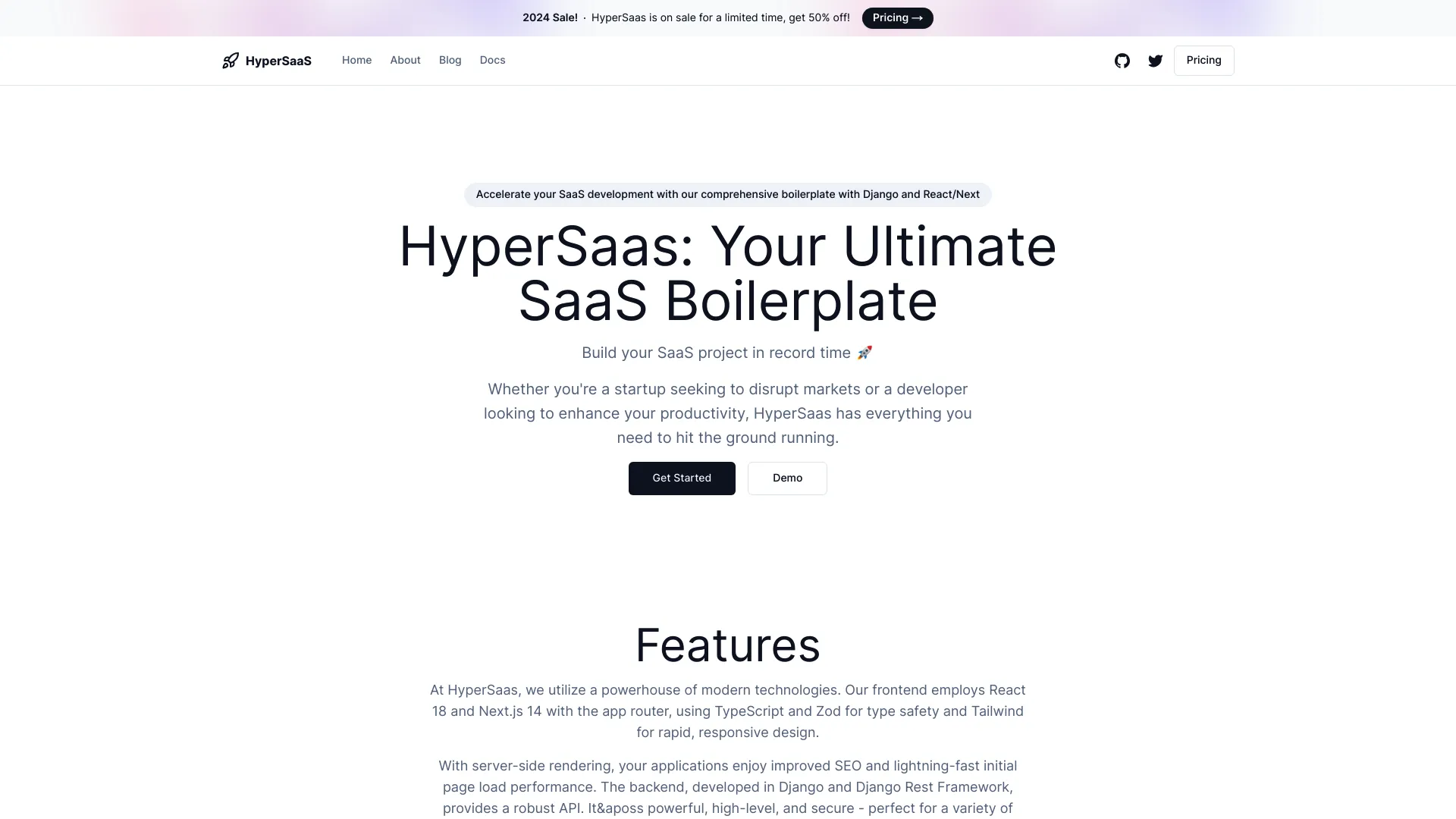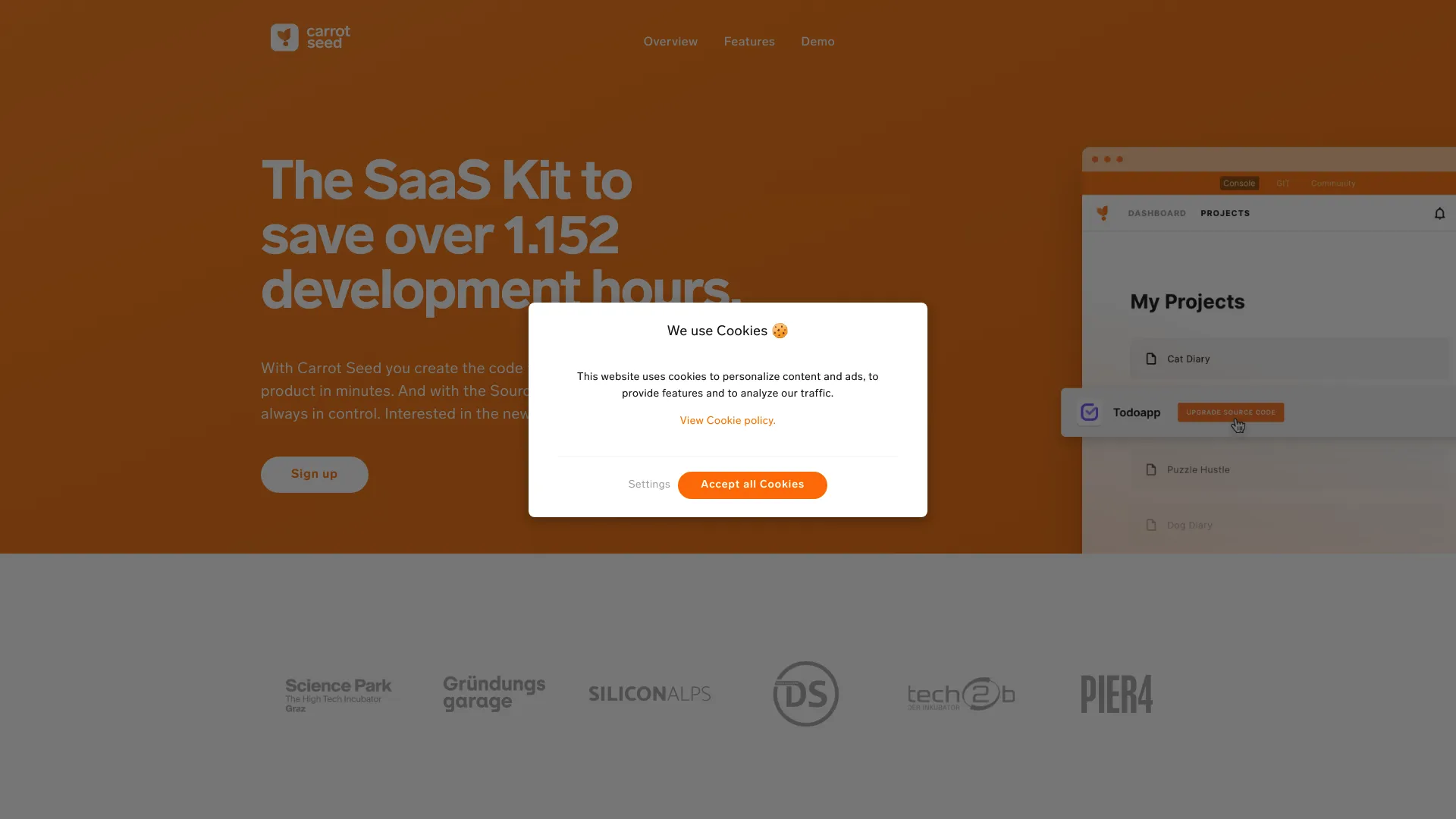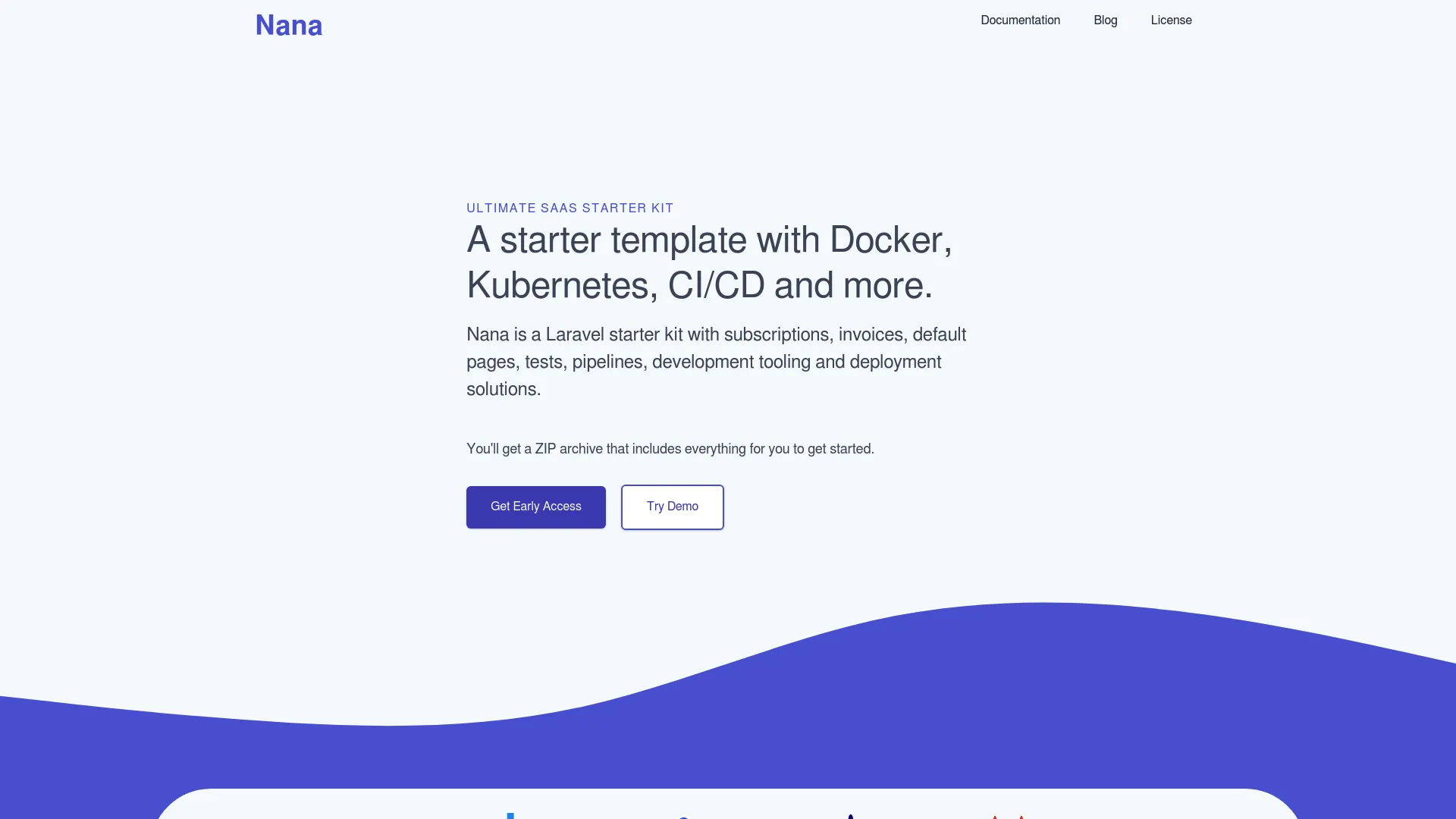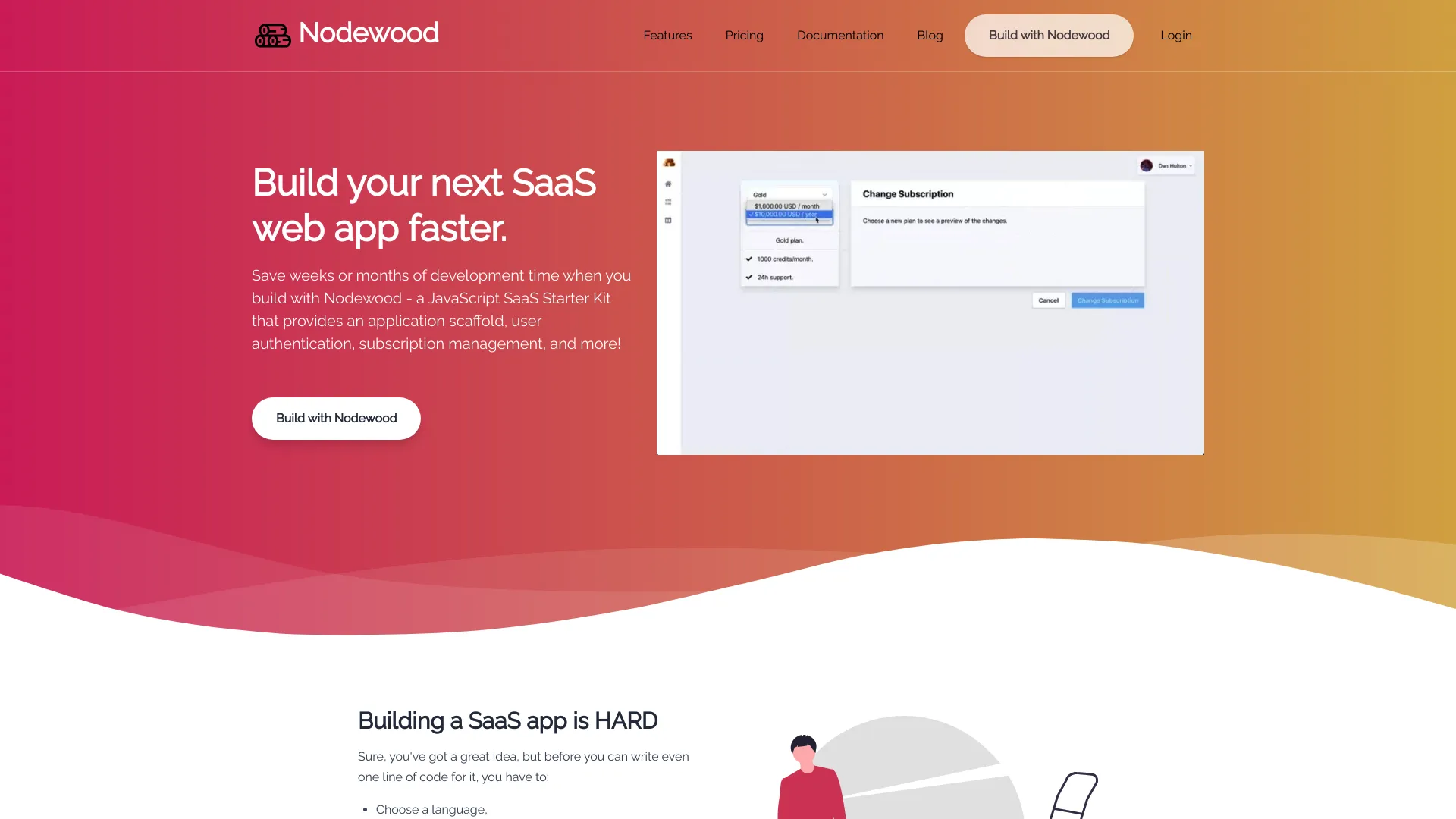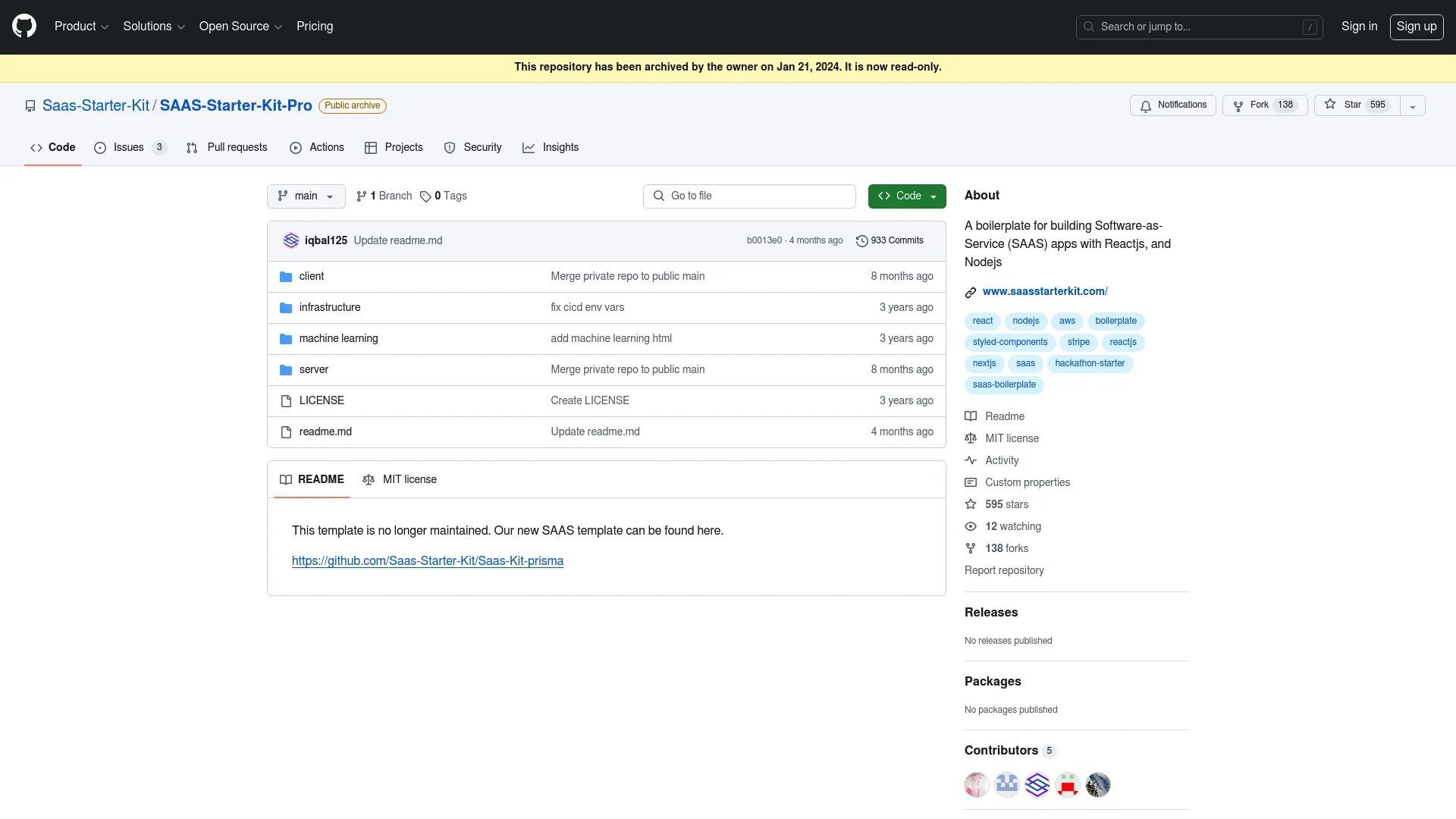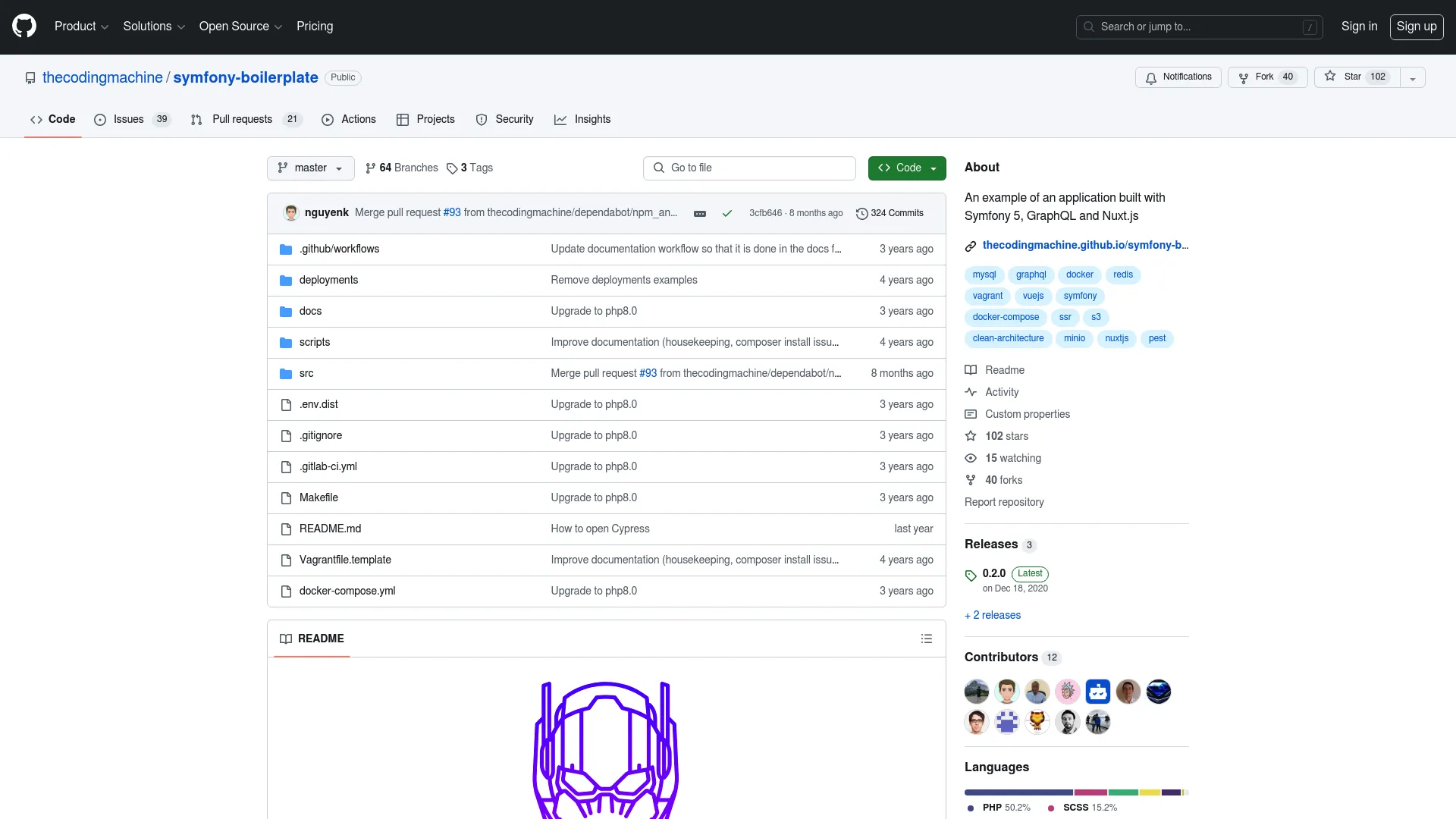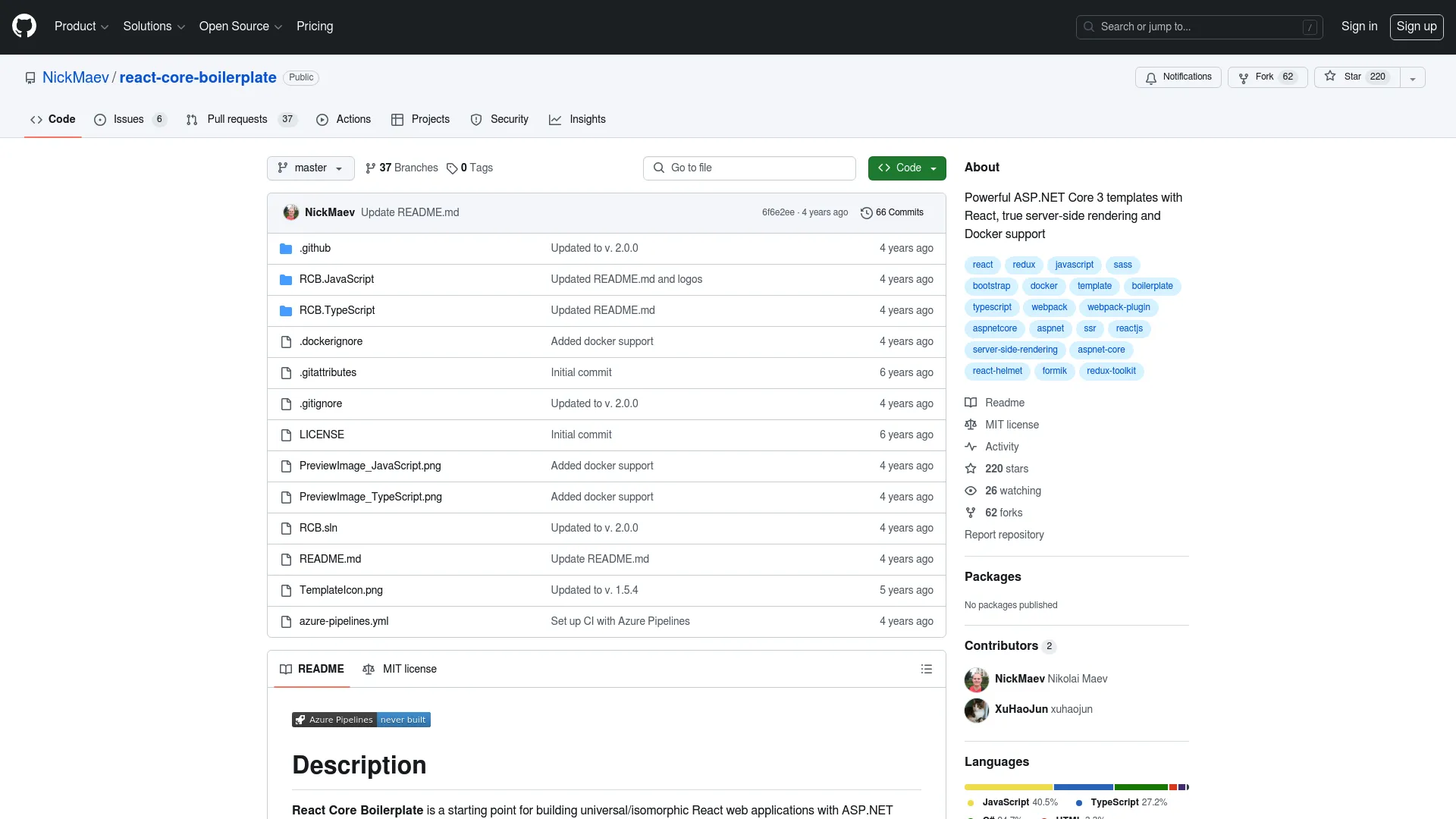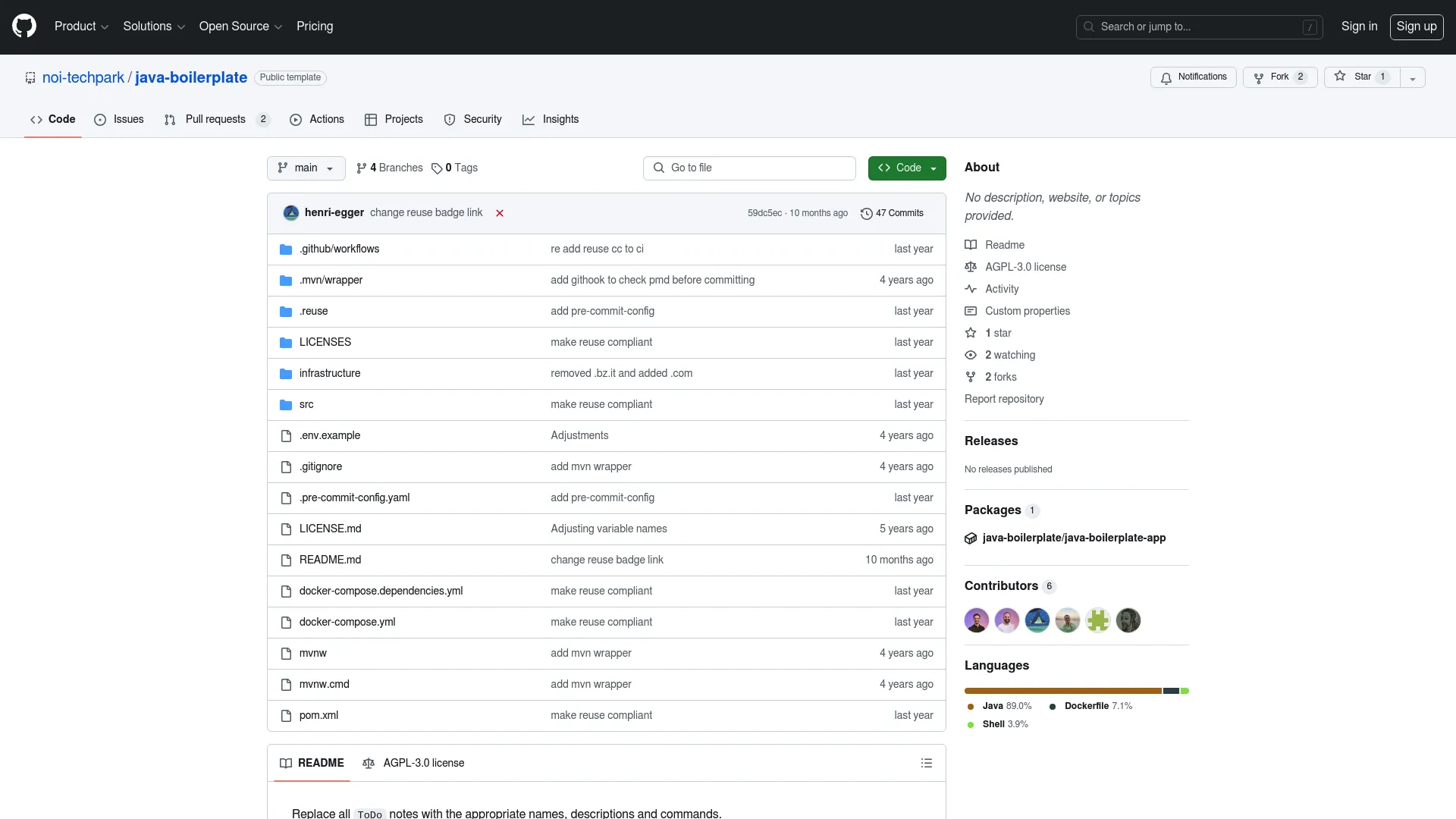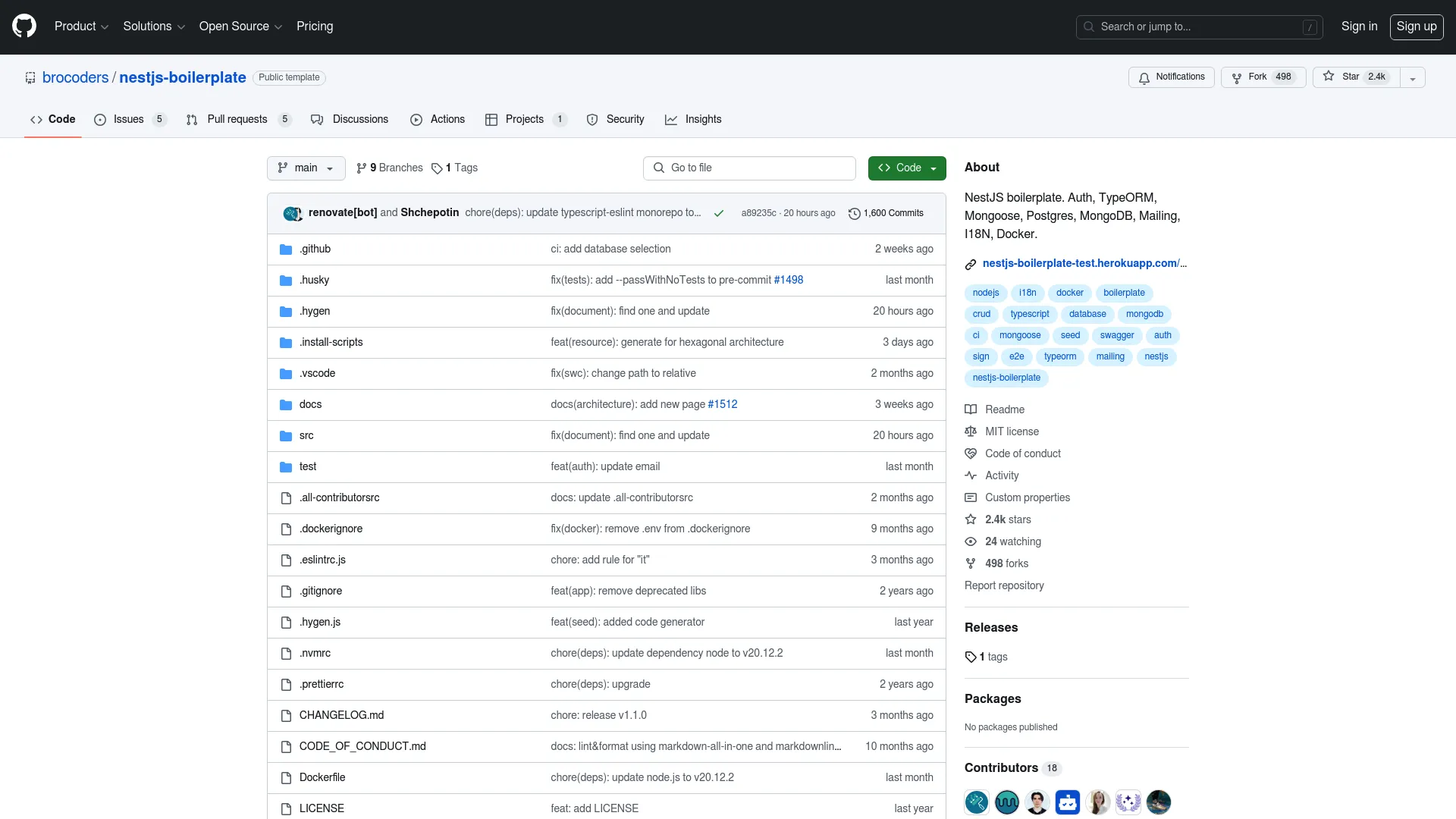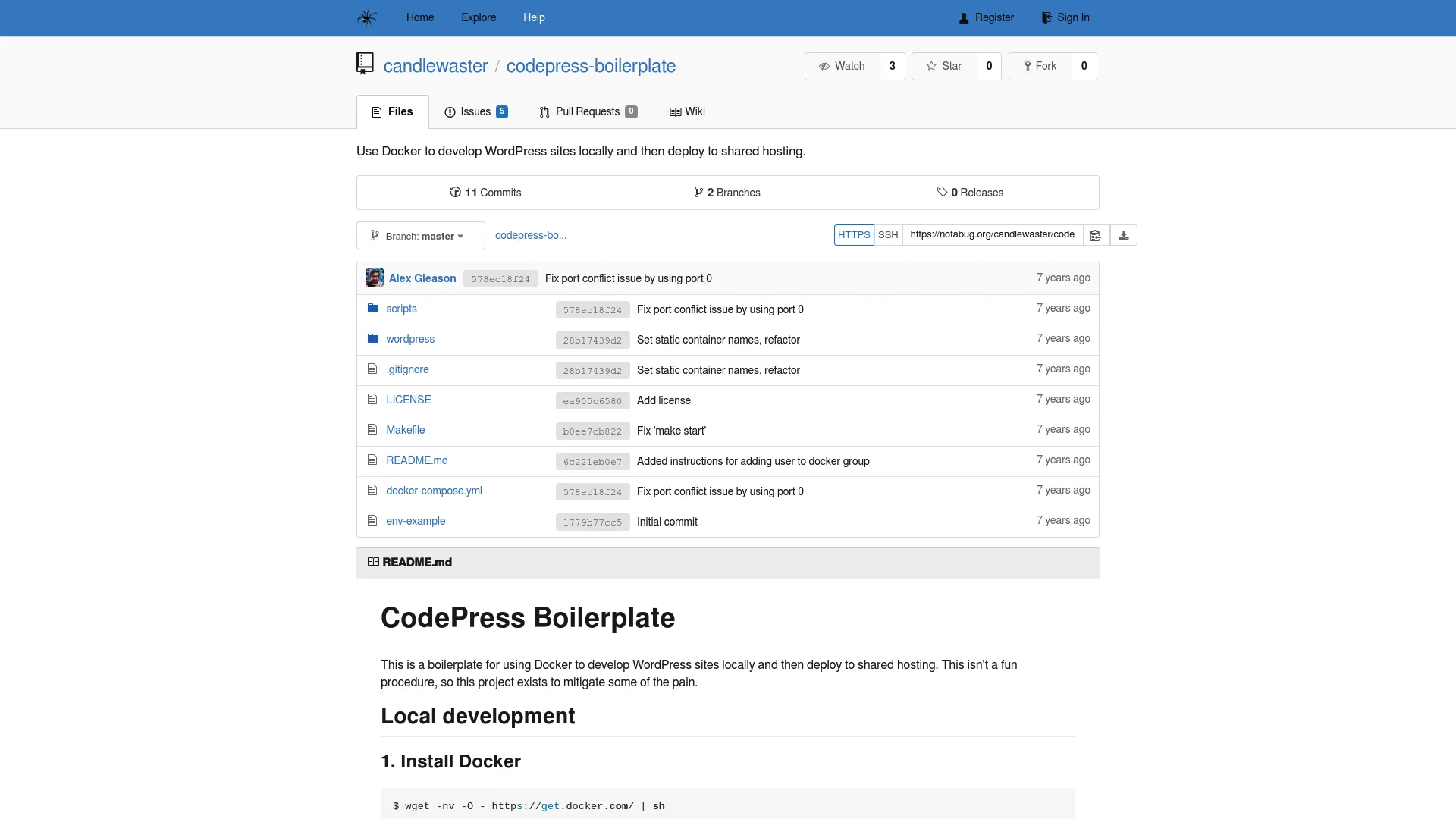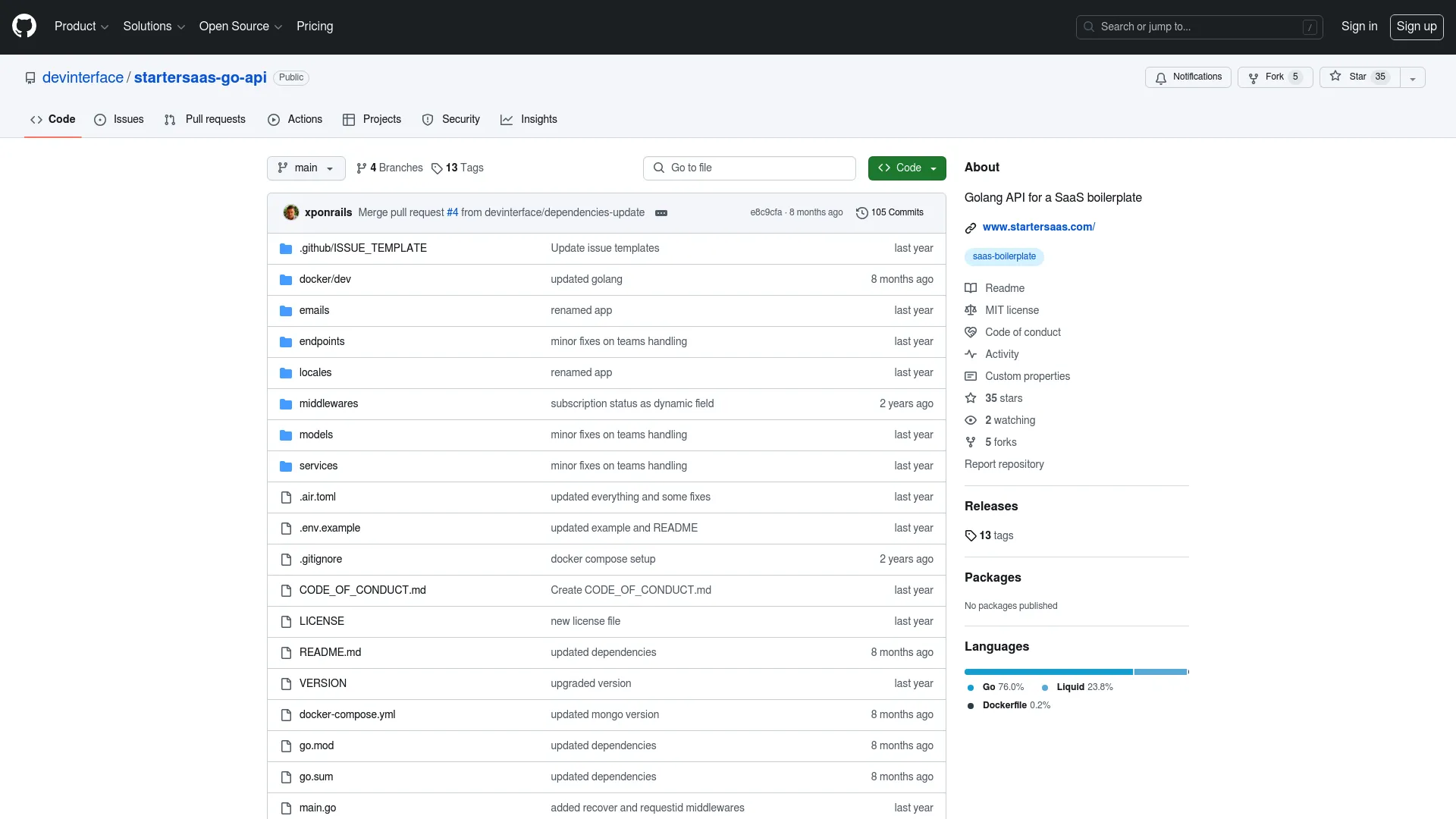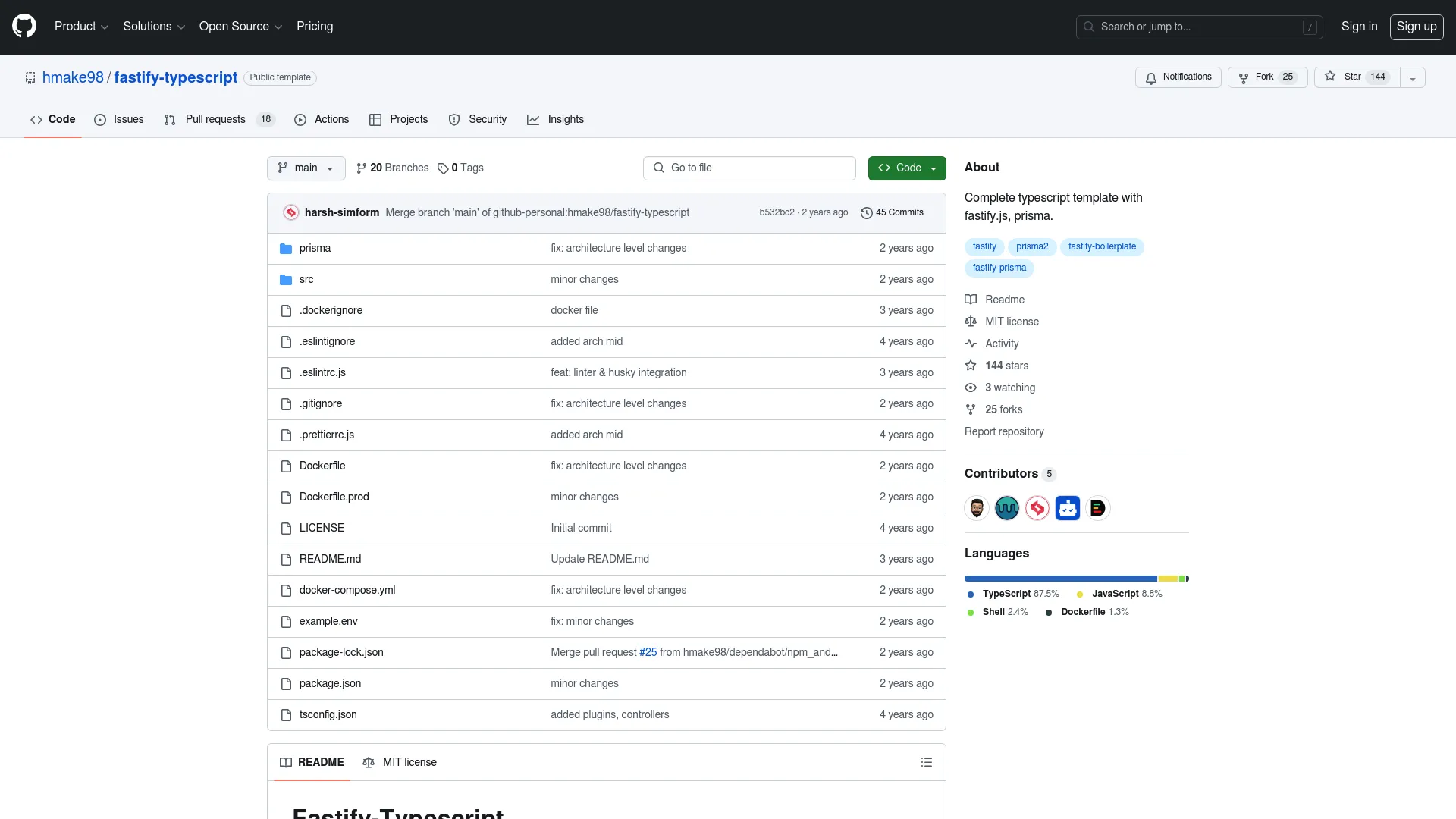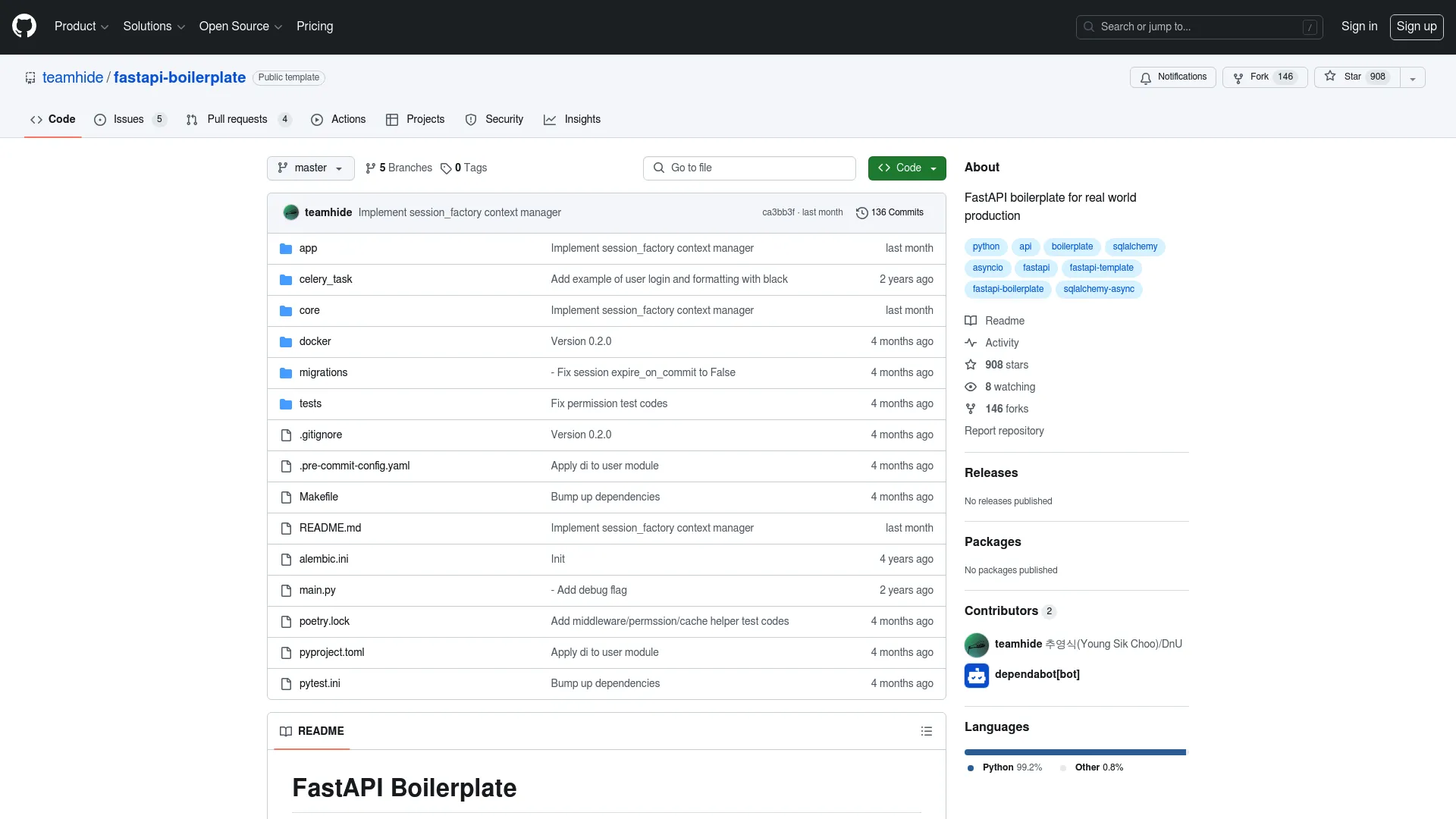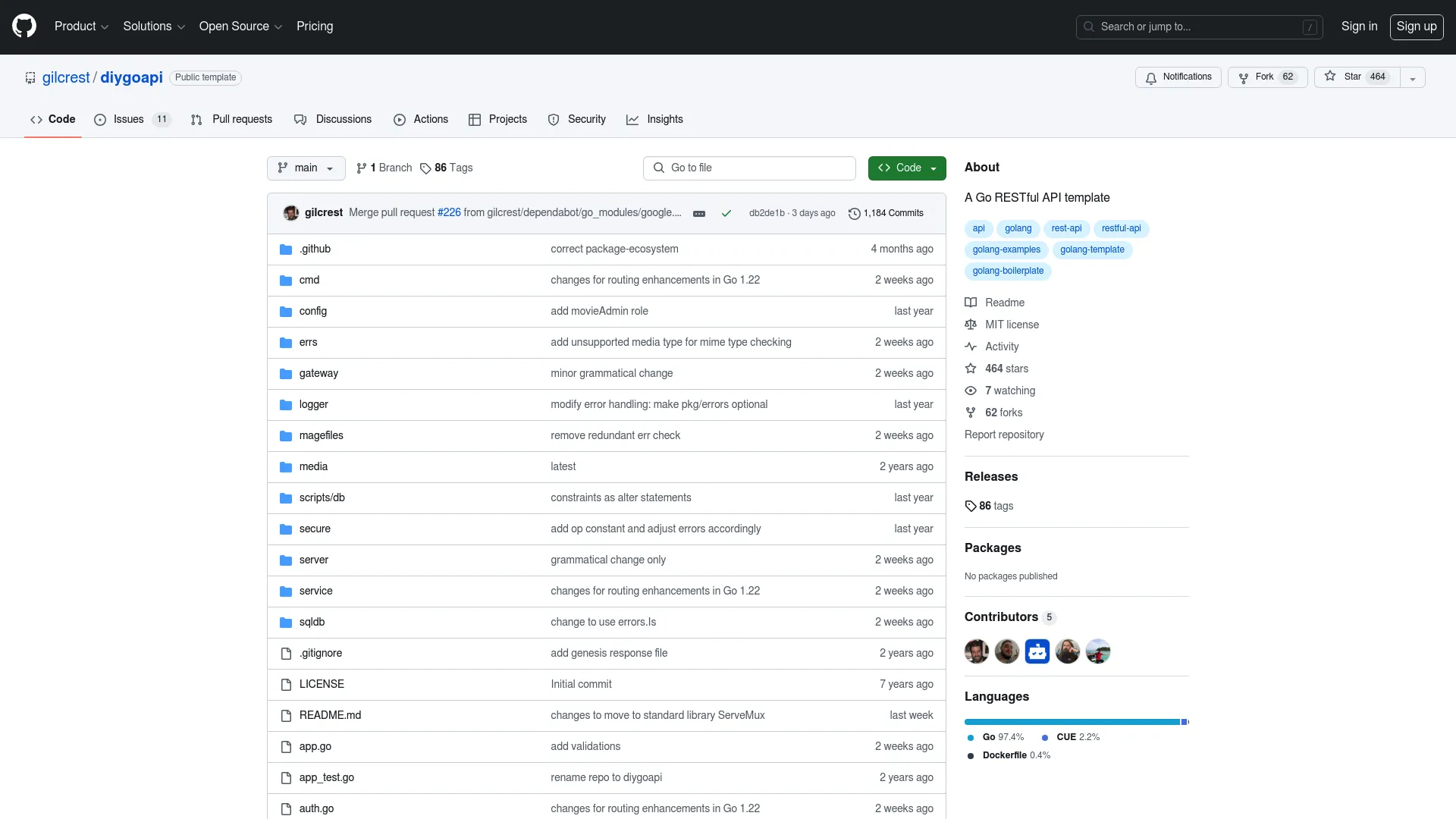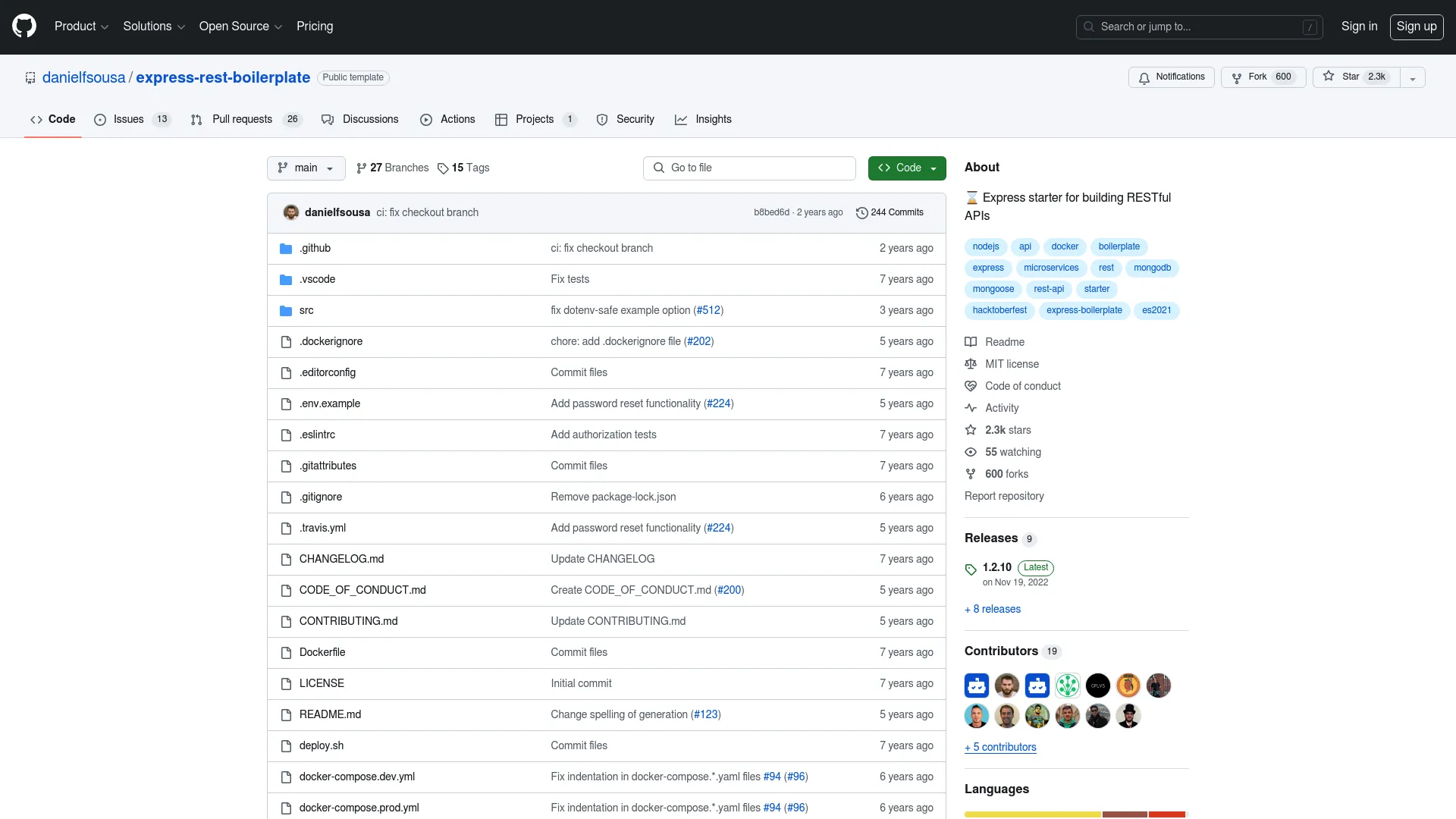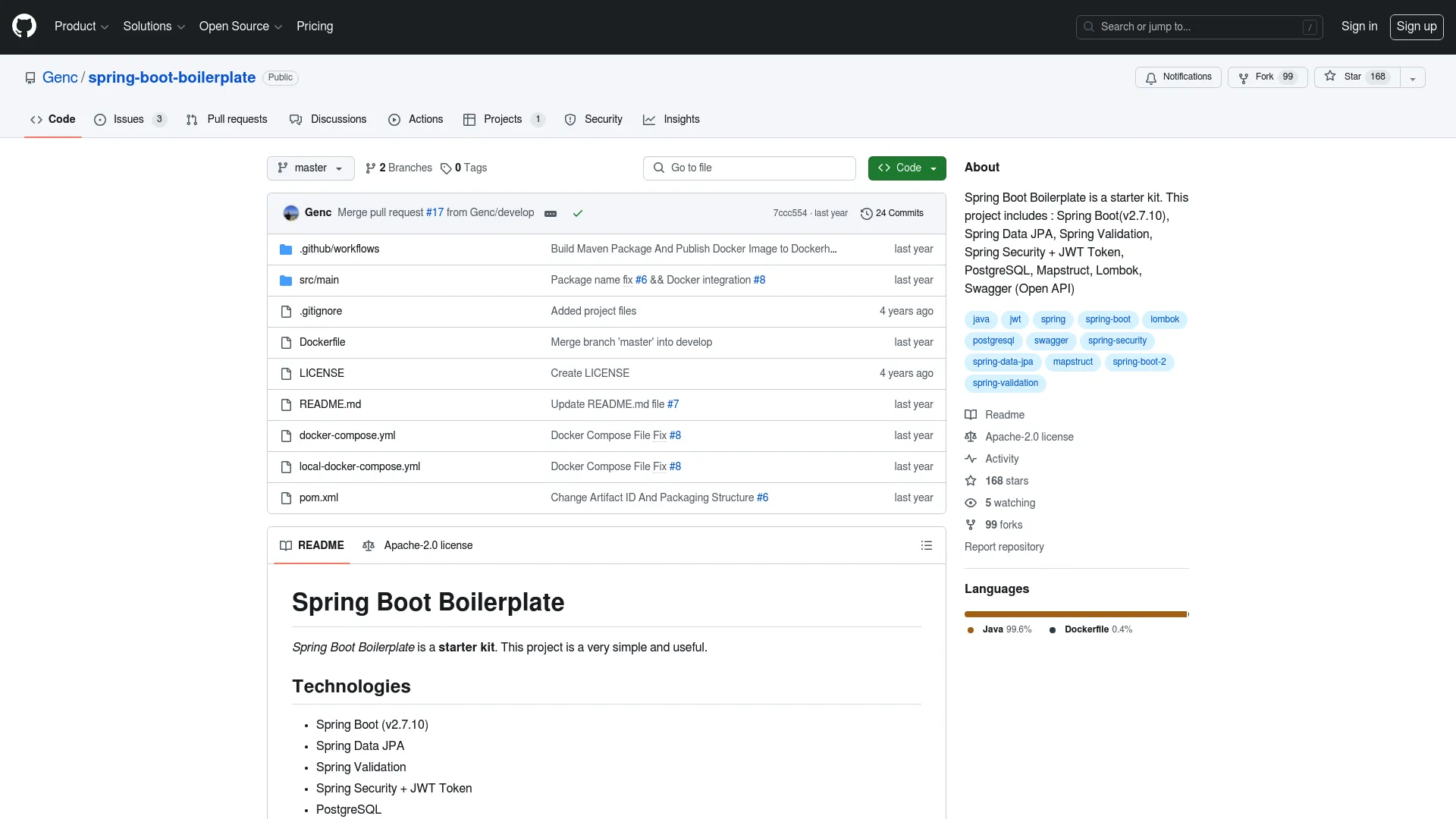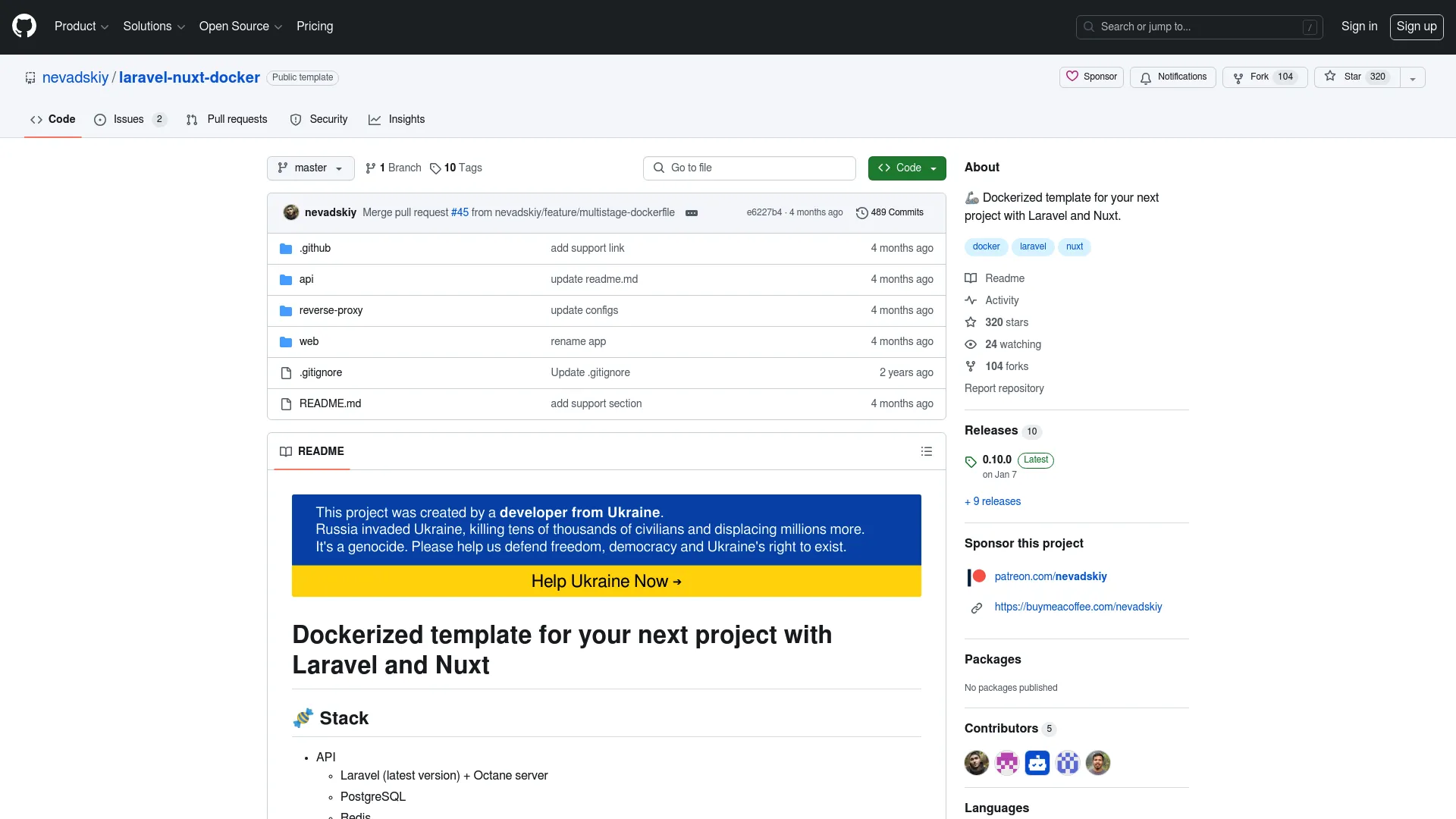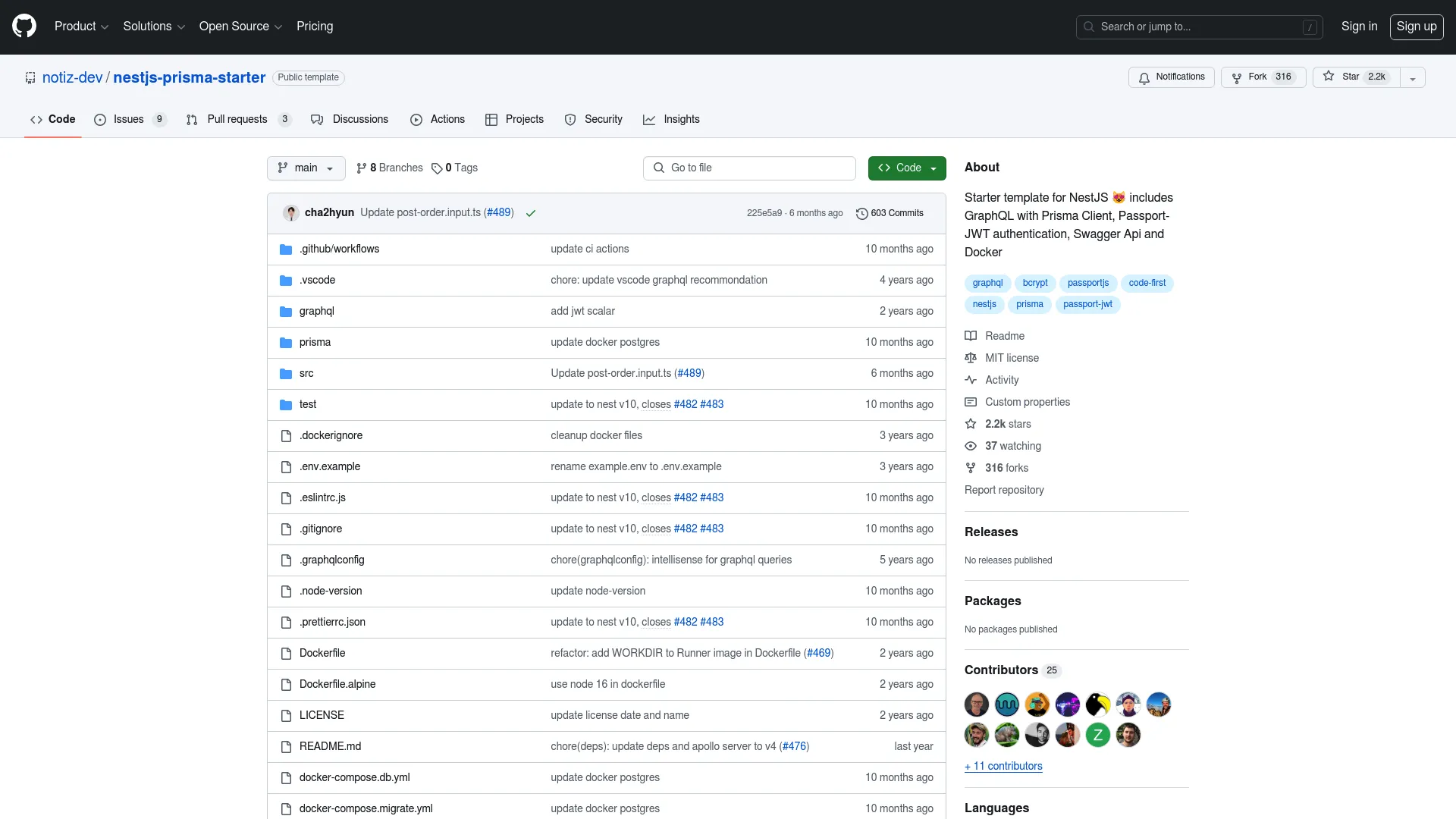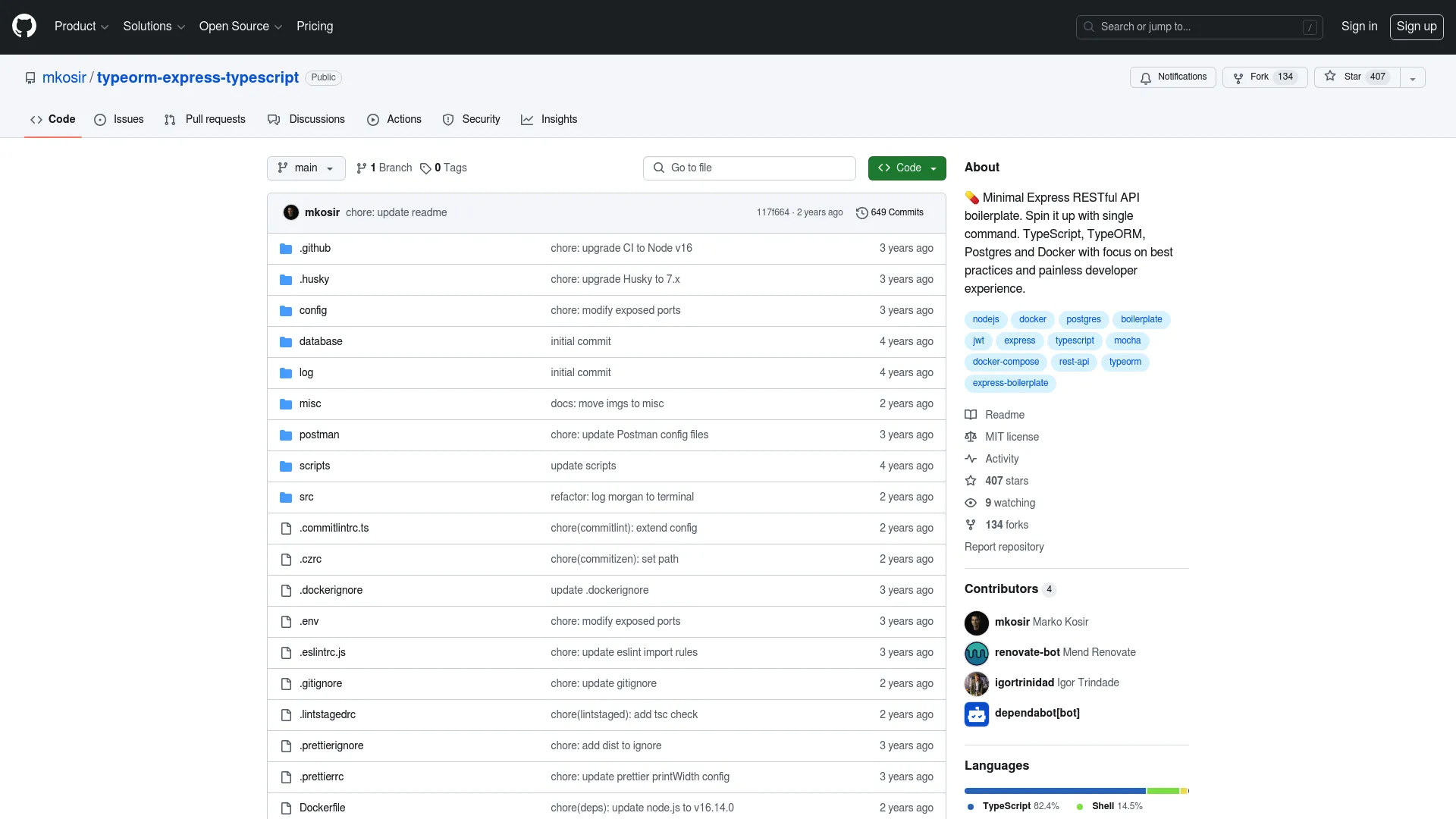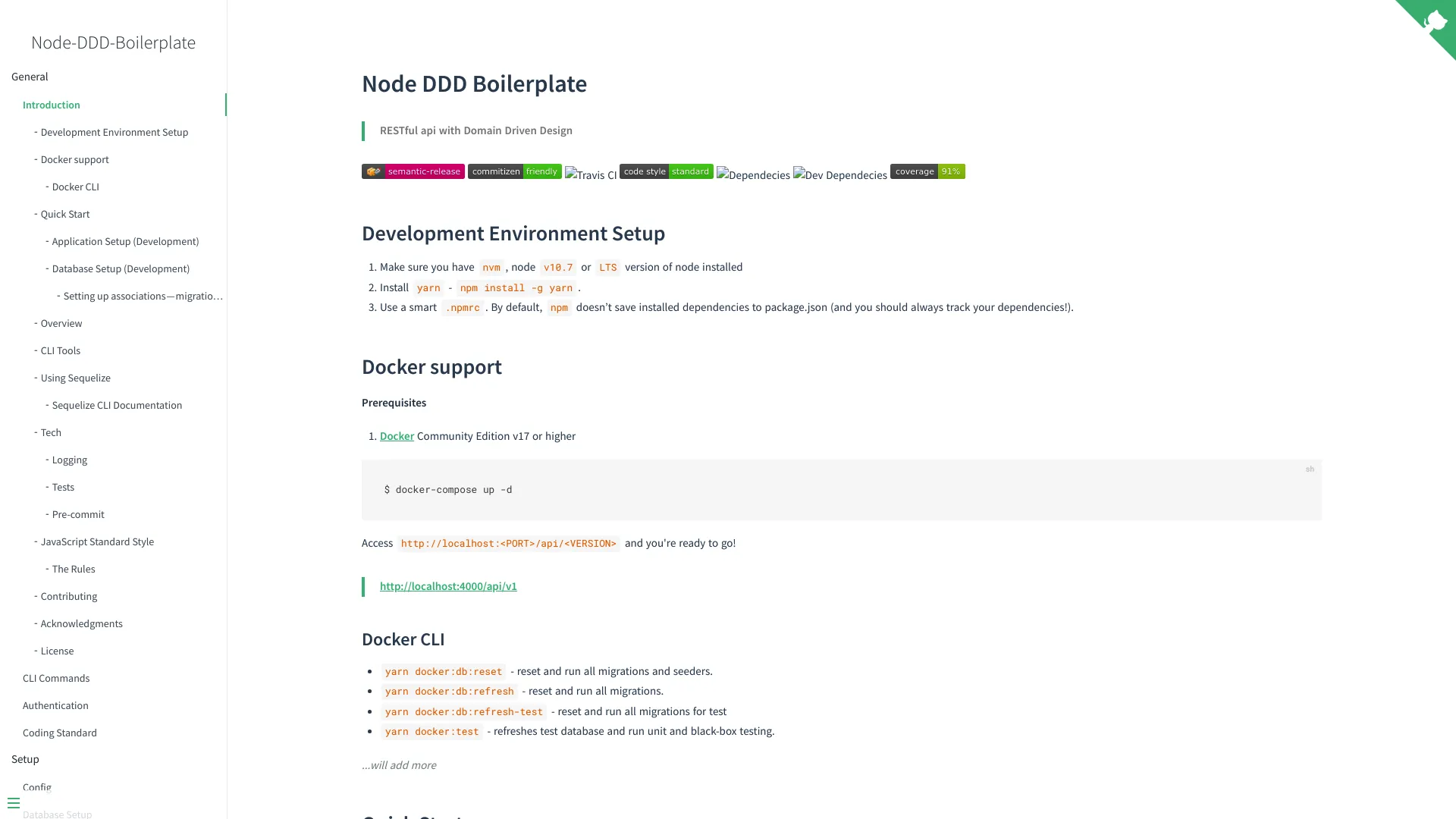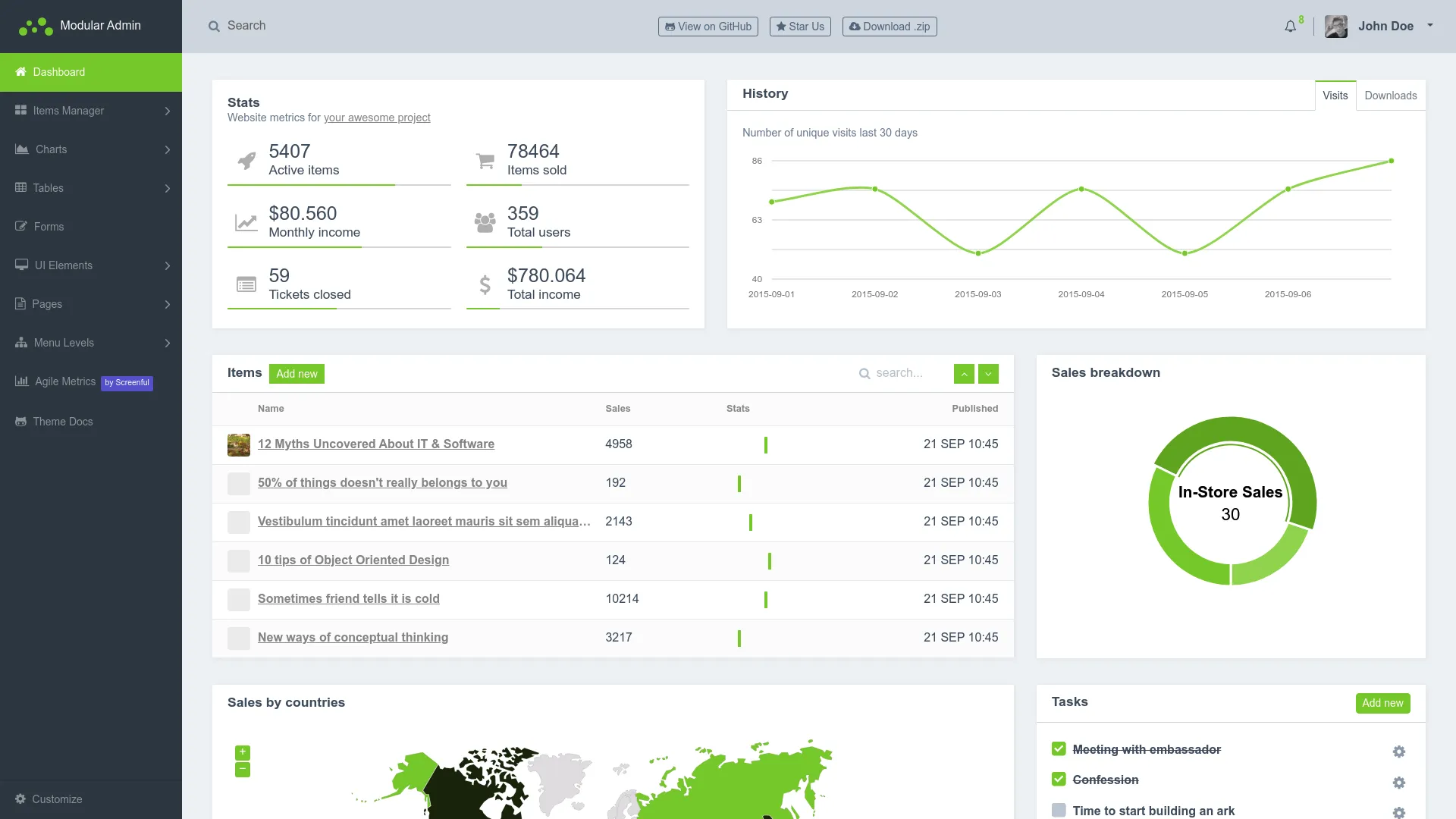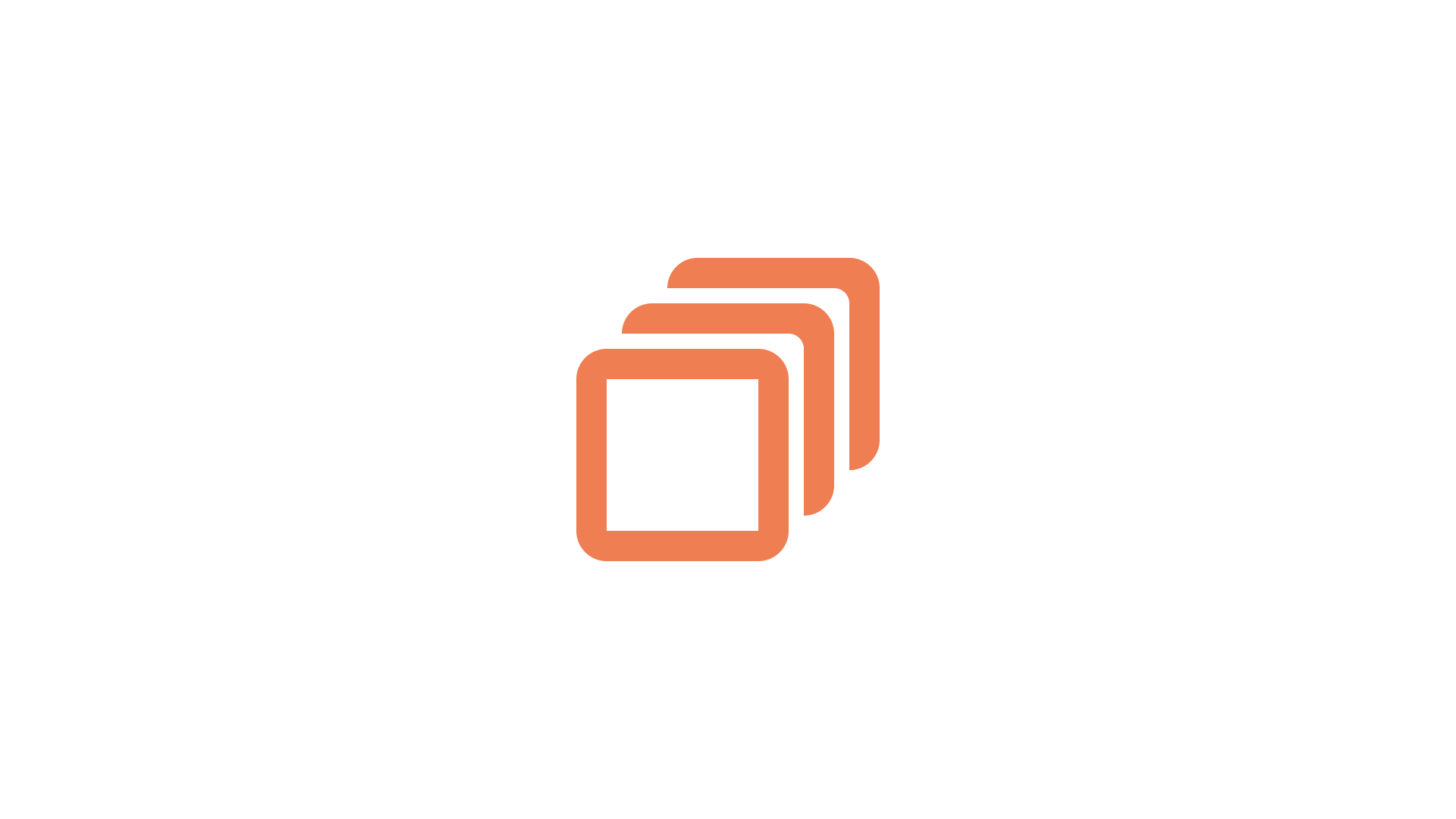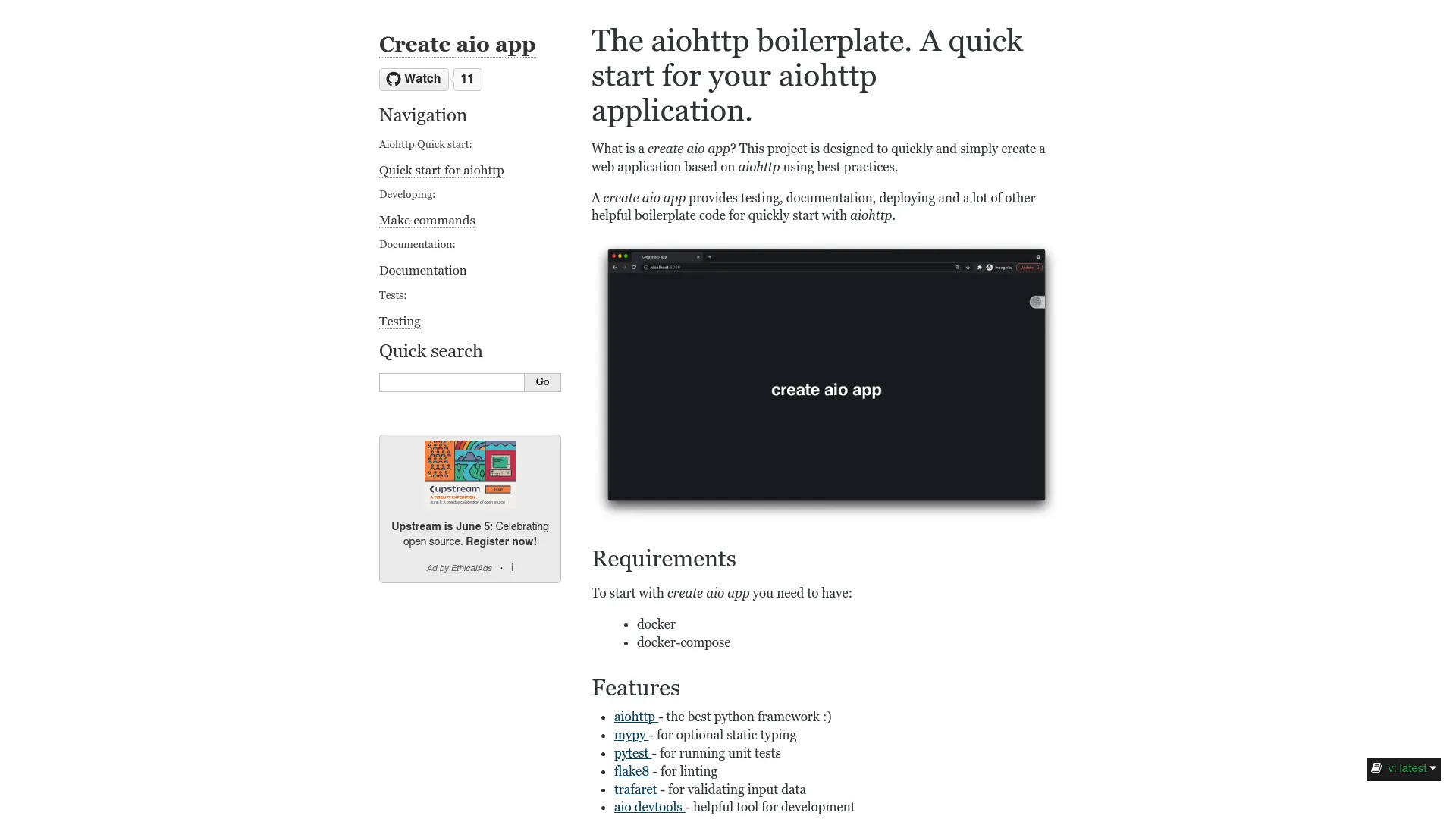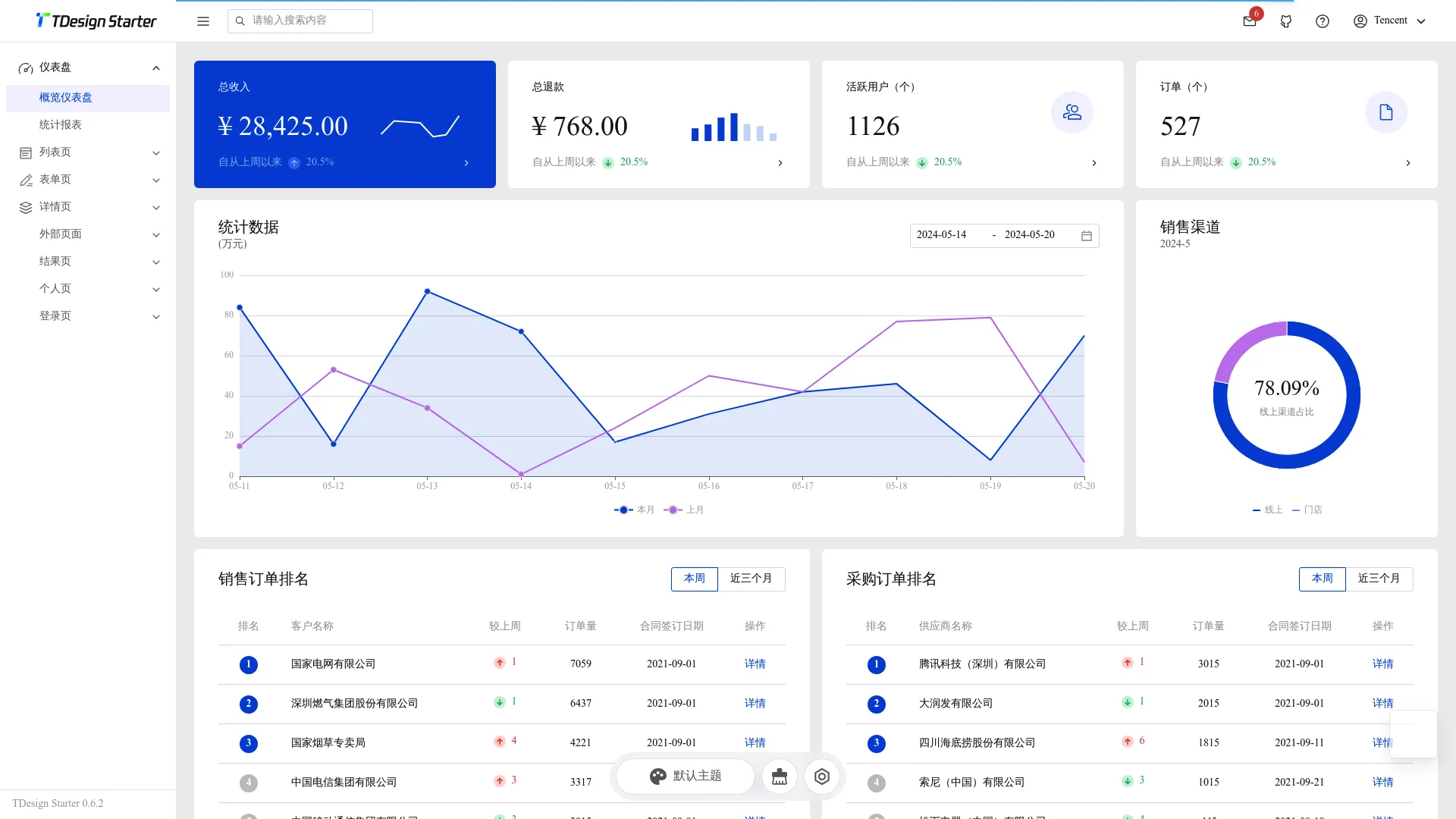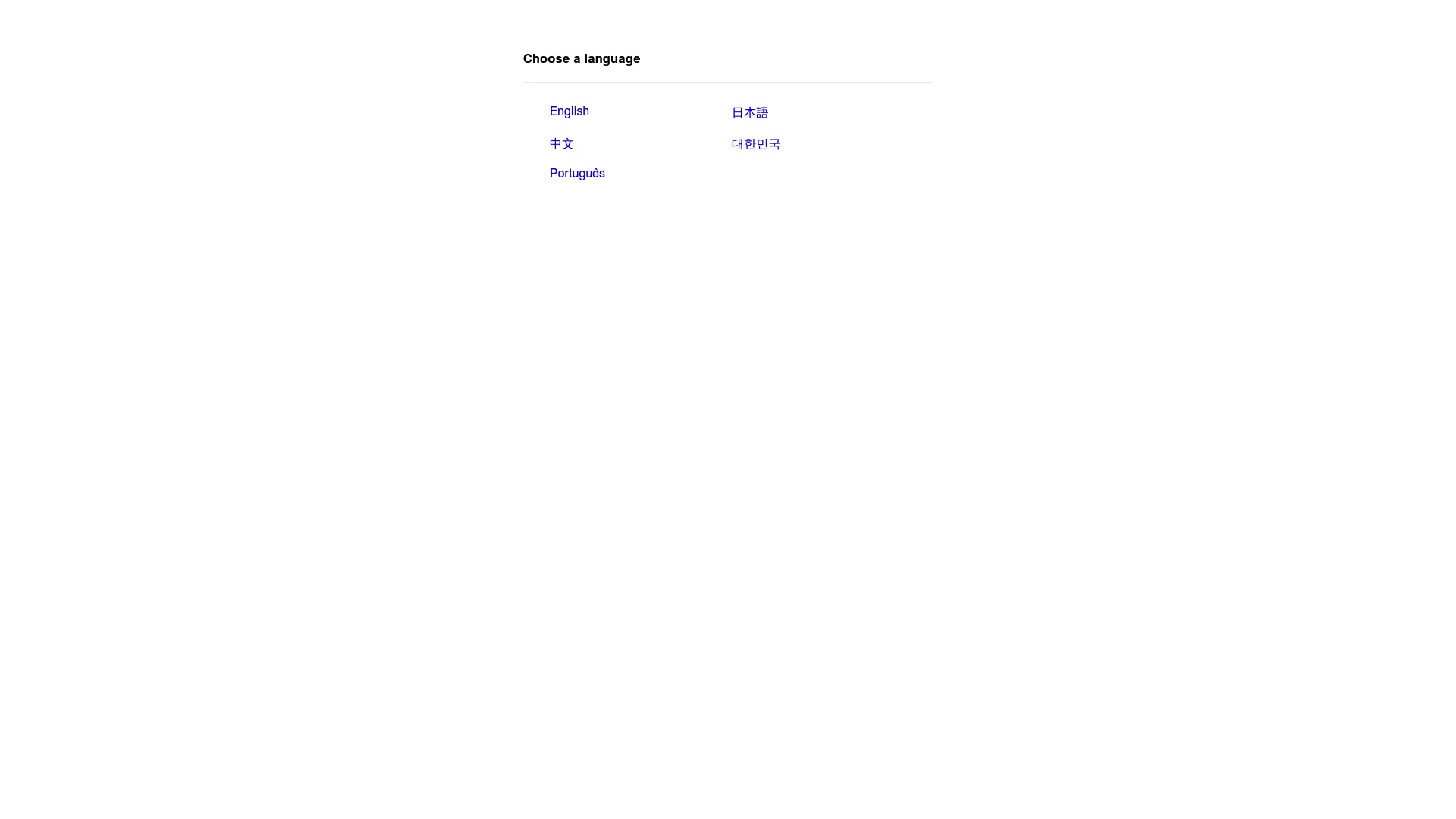Docker Boilerplates & Starter Kits
Docker is a popular platform used to develop, ship, and run applications inside containers. It allows developers to package up an application with all of its dependencies and ensures that it works seamlessly in any environment.
Technologies
Reset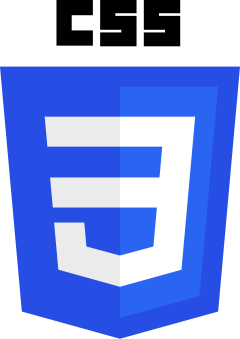


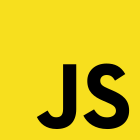


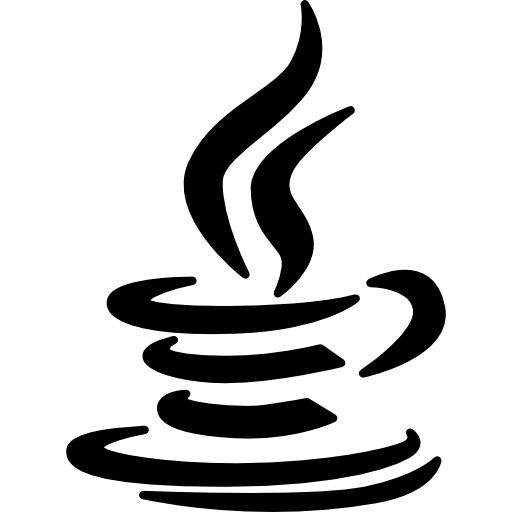




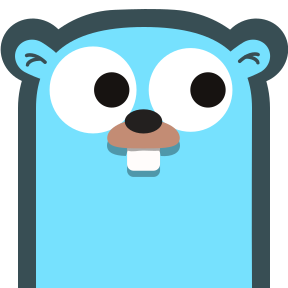





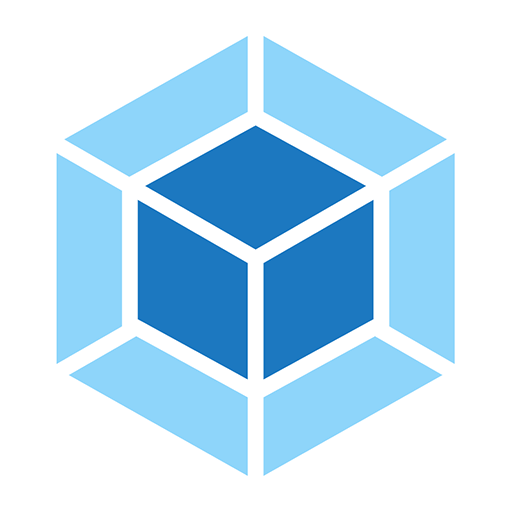
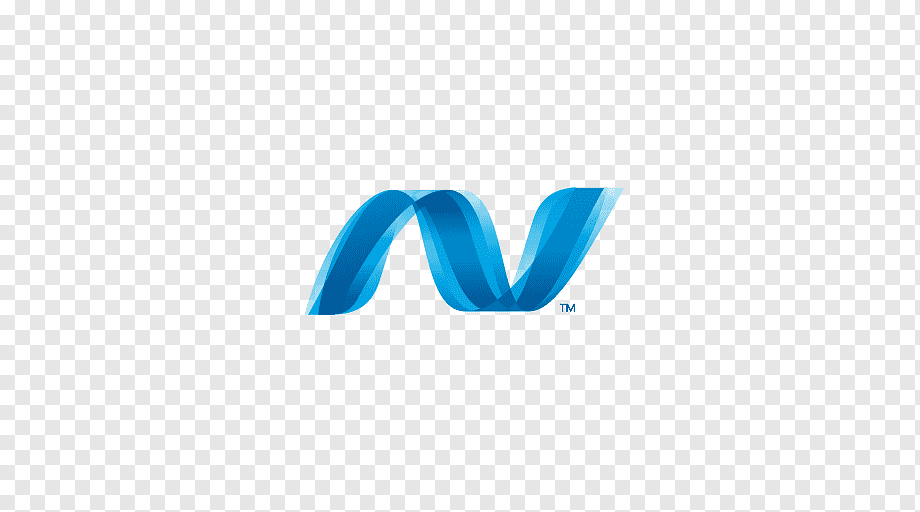



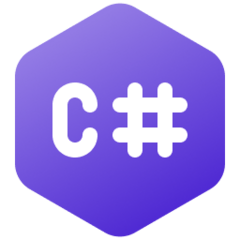








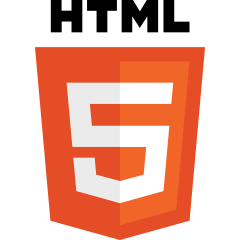
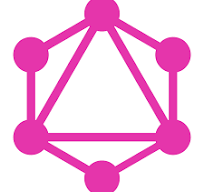



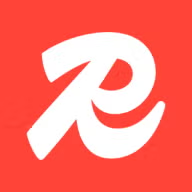





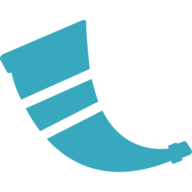



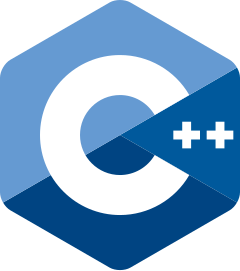



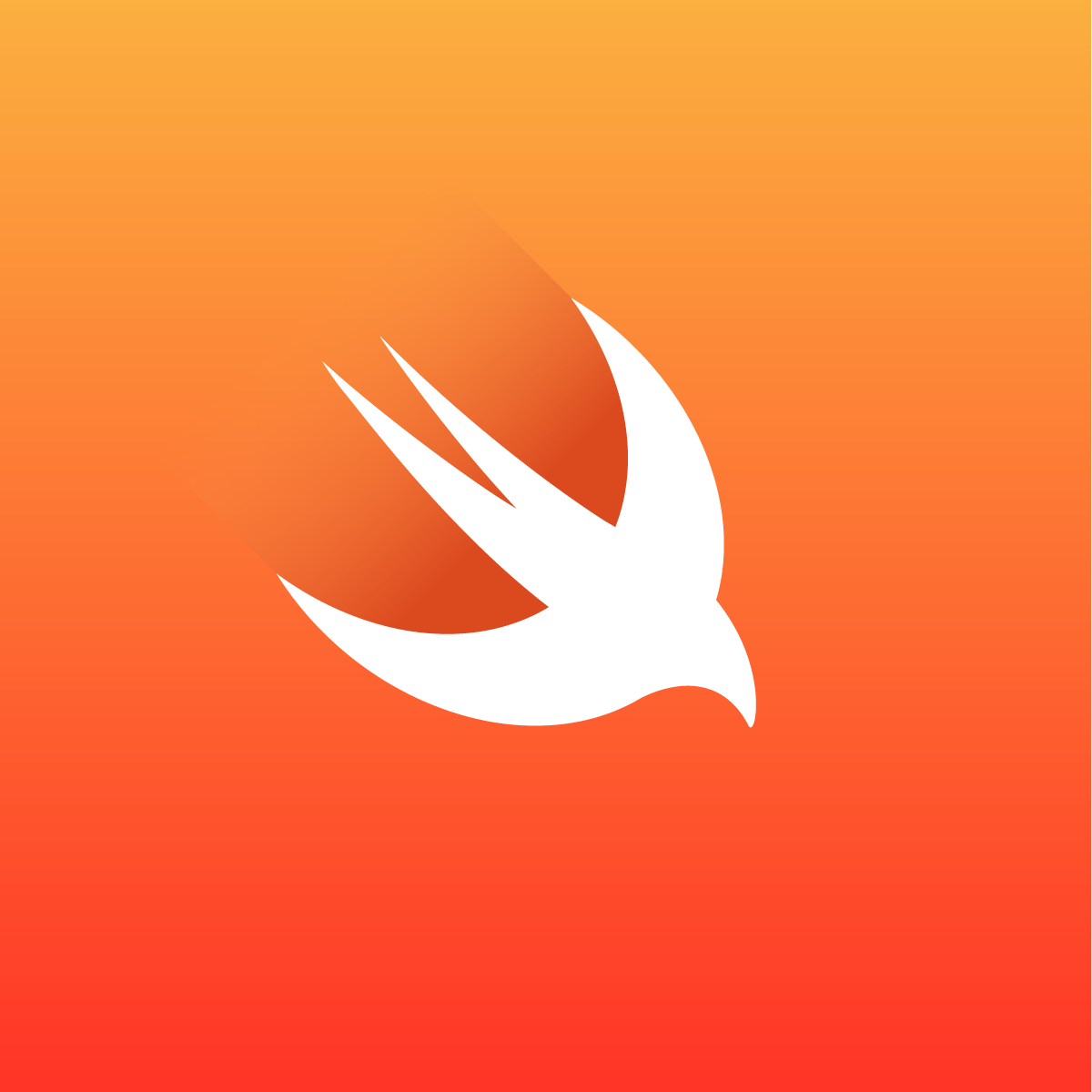





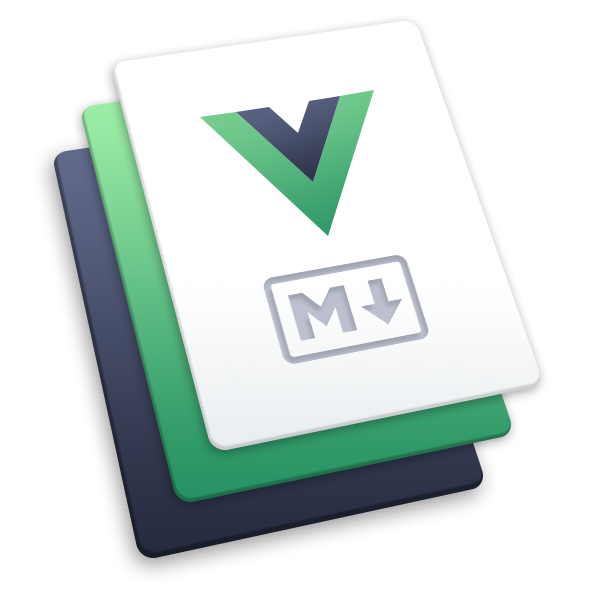






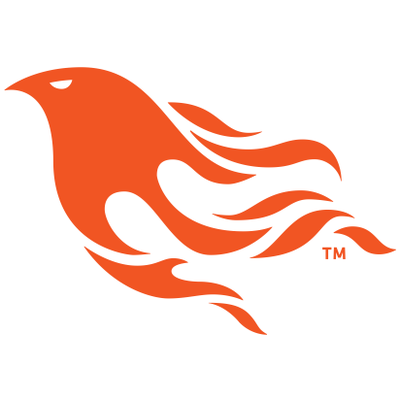
Tags
0 - 30 of 380 results Sort by
Featured
Cruip - Beautiful Tailwind CSS Templates
Beautifully designed landing pages, websites, and dashboards built on top of Tailwind CSS and
fully coded in HTML, React, Next.js, and Vue. A great starting point for your next project,
saving you weeks of development time.
Featured
Supastarter - Next.js, Nuxt & SvelteKit Starters
Boilerplates for quickly building apps with Supabase, designed to kickstart development with
ease.
Featured
UseSAASKit - SaaS Next.js Template
Flexible SaaS template designed to help you build, and launch in just 10 minutes.
Featured
Shadcnblocks - Block set for Shadcn UI + Tailwind
300 responsive components for Shadcn UI + Tailwind. Just copy & paste.
Hyper SaaS
👨🏻💻 by Alkemia Technologies LTD Paid
Build your SaaS project in record time 🚀
Whether you're a startup seeking to disrupt markets or a developer looking to enhance your productivity, HyperSaas has everything you need to hit the ground running.
Carrot Seed
👨🏻💻 by Carrot & Company GmbH Paid
With Carrot Seed you create the code foundation of your next SaaS product in minutes. And with the Source Code in your hands you’re always in control.
Nodewood
👨🏻💻 by Perihelion Heavy Industries Paid
Save weeks or months of development time when you build with Nodewood - a JavaScript SaaS Starter Kit that provides an application scaffold, user authentication, subscription management, and more!
SAAS Starter Kit Pro
👨🏻💻 by Unspecified Free
Saas Starter Kit is a modern SAAS boilerplate. Save weeks of development time having standard SAAS features implemented for you, and start building your core app right away.
Symfony Boilerplate by TheCodingMachine
👨🏻💻 by TheCodingMachine Free
An example of an application built with Symfony 5, GraphQL and Nuxt.js
React Core Boilerplate
👨🏻💻 by Nikolai Maev Free
Powerful ASP.NET Core 3 templates with React, true server-side rendering and Docker support
NestJS Boilerplate by Brocoders
👨🏻💻 by Brocoders Free
NestJS boilerplate. Auth, TypeORM, Postgres, Mailing, I18N, Docker.
CodePress Boilerplate
👨🏻💻 by Candlewaster Free
This is a boilerplate for using Docker to develop WordPress sites locally and then deploy to shared hosting. This isn't a fun procedure, so this project exists to mitigate some of the pain.
Starter Saas Go API
👨🏻💻 by DevInterface SRL Free
This project contains everything you need to setup a fully featured SaaS API in 5 minutes.
Fastify Typescript by Harsh Makwana
👨🏻💻 by Harsh Makwana Free
Complete typescript template with fastify.js, prisma.
Fastapi Boilerplate by TeamHide
👨🏻💻 by Young Sik Choo Free
FastAPI boilerplate for real world production
Diygoapi
👨🏻💻 by Dan Gillis Free
A RESTful API template (built with Go)
The goal of this project is to be an example of a relational database-backed REST HTTP Web Server that has characteristics needed to ensure success in a high volume environment. This project co-opts the DIY ethos of the Go community and does its best to "use the standard library" whenever possible, bringing in third-party libraries when not doing so would be unduly burdensome (structured logging, Oauth2, etc.).
Express Rest Boilerplate by Daniel Sousa
👨🏻💻 by Daniel Sousa Free
Express starter for building RESTful APIs
Spring Boot Boilerplate by Genc
👨🏻💻 by Genc Free
Spring Boot Boilerplate is a starter kit. This project is a very simple and useful.
Laravel Nuxt Docker
👨🏻💻 by Vitalii Free
🦾 Dockerized template for your next project with Laravel and Nuxt.
Nestjs Prisma Starter
👨🏻💻 by Notiz Dev Free
Starter template for NestJS 😻 includes GraphQL with Prisma Client, Passport-JWT authentication, Swagger Api and Docker
Typeorm Express Typescript Boilerplate by Mkosir
👨🏻💻 by Marko Kosir Free
Minimal Express RESTful API boilerplate. Spin it up with single command. TypeScript, TypeORM, Postgres and Docker with focus on best practices and painless developer experience.
Modular Admin Html
👨🏻💻 by Modularcode Free
ModularAdmin - Free Dashboard Theme Built On Bootstrap 4 | HTML Version
Nestjs Starter Rest Api
👨🏻💻 by Monstar Lab Oss Free
NestJS Starter Kit. Monolithic Backend. REST API.
Create Aio App
👨🏻💻 by Aio Libs Free
The boilerplate for aiohttp. Quick setup for your asynchronous web service.
Pollinate
👨🏻💻 by Howardroark Free
Template your base files and generate new projects from Git(Hub).
Helpdesk Assistant
👨🏻💻 by RasaHQ Free
Electron Vue
👨🏻💻 by SimulatedGREG Free
An Electron & Vue.js quick start boilerplate with vue-cli scaffolding, common Vue plugins, electron-packager/electron-builder, unit/e2e testing, vue-devtools, and webpack.
Koa Web Kit
👨🏻💻 by JasonBoy Free
🚀A Modern, Production-Ready, and Full-Stack Node Web Framework with React
You can also try
